Coronavirus Australia live news: Andrews still in anti-lockdown protesters’ sights
The end of Melbourne’s strict lockdown is just hours away, but protesters are still planning to carry on with their next rally on Melbourne Cup Day.
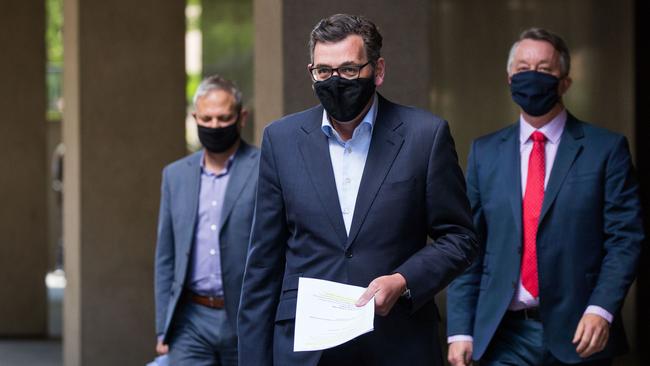
- Shops count down to midnight opening
- We believe recession is over: RBA
- Andrews’ new house rules
- Victoria records 0 new cases
- Why Melbourne won’t lock down again
- Oxford vaccine out by Christmas
Welcome to our live coverage of the fallout from the coronavirus pandemic.
The end of Melbourne’s strict lockdown is just hours away, but protesters are still planning to carry on with their next rally on Melbourne Cup Day. A health alert has been issued after fragments of COVID-19 were detected in sweage in Sydney’s south-west. After 111 days of shuttered doors, Melbourne’s retailers reopen at midnight on Tuesday and some of Australia’s most recognisable brand names have announced special hours to coincide with the easing of restrictions. Reserve Bank deputy governor Guy Debelle has said the bank now believes the country’s first recession in three decades ended in the September quarter, saying “as best as we can tell the growth elsewhere in the country was more than the drag from Victoria”.
In question time, Josh Frydenberg declared Victoria’s zero cases of coronavirus are the people’s victory and no-one else’s, as he lashed out at federal Labor’s defence of the Andrews government. It comes as the state has recorded its second consecutive day of no new coronavirus cases or deaths. NSW has recorded two new locally acquired cases.
Ben Wilmot, David Ross 10.30pm: Liberated Melbourne races to open
Small businesses are champing to reopen along Melbourne’s shopping strips but bringing the city fully back to life could take some time.
Carlton restaurant Tiamo, a Melbourne institution on the city’s famed Lygon Street, was preparing for table service to resume on Thursday.
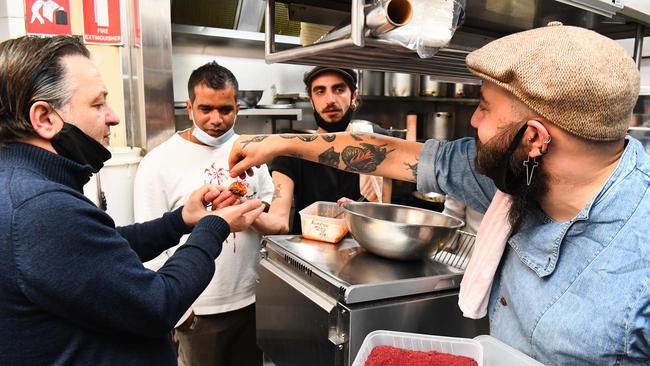
Tiamo director Carl Masini predicted the opening would be huge after months of being closed.
“When it was announced the phones were run off the hook, we’ve overbooked ... We’ll come back with a full house for Thursday, Friday, Saturday,” he said. “We’re opening up Thursday because we need the time to get ready. A lot of businesses don’t have time to get ready; they need to rehire staff, stock up.”
Up and down the dining strip restaurants are putting out chairs and tables, ordering stock, and bringing staff back in ahead of a re-emergence of the Melbourne dining scene.
Read the full story here.
Philip Willan 9.20pm: Italy shuts ski lifts after tourists jostle in queues
Italy’s ski season is facing chaos after the government shut ski lifts for a month following reports of holidaymakers jostling in queues and packing into gondolas with no social distancing.
The order came in an emergency decree that imposed new restrictions on a country where the virus has killed more than 37,000 people and infected half a million. Only professional skiers will be allowed on Italy’s slopes, upsetting tourists’ plans.

Resort managers in Cervinia, on the Italian side of the Matterhorn, said their slopes would stay shut until Rome approved safety guidelines from ANEF, the national ski resort association.
Italy’s ski resorts were among the first areas in Europe to report cases of COVID-19 and are suspected of seeding outbreaks across the continent.
Matteo Zanetti, president of Cervino SpA, which operates lifts at Cervinia, dismissed claims that the resorts had failed to keep holidaymakers safe. “There were queues on Saturday but they didn’t last long and it was because we did more than necessary,” he said. “We took the temperature of every skier and understood how to improve.”
Luigi Bertschy, the official responsible for ski lifts in the region, said Cervinia had taken action. Arrivals were staggered and there had been no holdups, he said, allowing 1700 people to make their way to the slopes in safety.
Valeria Ghezzi, president of ANEF, said: “If the lifts don’t open the entire economy of the Alps will suffer.” She added: “Skiing is a naturally distanced activity. A big issue is the capacity of the cabin lifts, but the journey time is short, the cabins are ventilated and people will be wearing facemasks. It’s a psychological question more than anything.”
The Times
READ MORE: How coronavirus lies spread worldwide
Tom Whipple 8.50pm: Elderly respond well to vaccine
Older people have a strong immune response to the vaccine being developed by Oxford University, raising hopes that it will protect all sectors of society.
Although research has yet to prove the vaccine protects against disease, it has shown that even in people over 70 it elicits a robust antibody and T-cell immune response. The findings come from a previously unreleased analysis of early-stage human trials, looking specifically at volunteers aged 56 and over.
“This marks a key milestone and reassures us that the vaccine is safe for use and induces strong immune responses in both parts of the immune system in all adult groups,” said Andrew Pollard, from Oxford University.
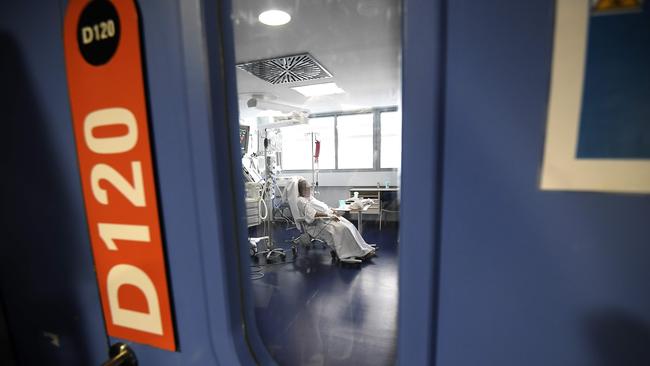
AFP 8.20pm: Russia tightens virus restrictions as cases spike
Russia has tightened anti-coronavirus restrictions including mask-wearing in public spaces after registering a record daily spike in virus deaths.
According to the country’s consumer safety regulator, Rospotrebnadzor, face masks are to be worn in crowded areas, on public transport, in taxis and lifts from Wednesday.
Rospotrebnadzor also banned public events between 11 pm and 6 am, saying cafes and restaurants should be closed during this time.
On Tuesday, health authorities reported a record 320 deaths from the coronavirus over the past 24 hours.
Russia has the fourth-highest virus caseload in the world, with a total of 1,547,774 registered infections and 26,589 deaths.
Moscow remains the epicentre of the outbreak and earlier this month residents over the age of 65 were asked to stay at home.
At the beginning of the pandemic, Russia imposed one of the most severe nationwide lockdowns.
Non-essential businesses were shuttered and Moscow residents only permitted to move freely with official digital passes.
But most restrictions were lifted ahead of a large military parade in June and a nationwide vote on amendments that paved the way for President Vladimir Putin to remain in power until 2036.
READ MORE: Science of silence: why hitting mute is good for you
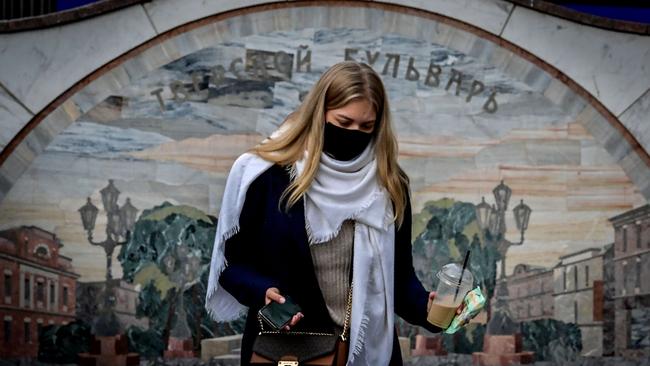
AFP 7.50pm: Pandemic pummelling foreign investment: UN
The coronavirus crisis is expected to drag foreign direct investment down by up to 40 per cent this year, with a recovery not expected until 2022, UN economists say.
A report by the UN Conference on Trade, Investment and Development found that lockdowns and the prospect of a deep global recession had dramatically shrunk FDI, which is a measure of cross-border private sector investment.
The agency said that worldwide, FDI was 49 per cent lower during the first half of 2020 than during the same period last year — and that every major form of foreign investment took a hit, ranging from infrastructure funding to mergers and acquisitions.
“The decline was quite drastic,” James Zhan, UNCTAD’s investment and enterprise chief, tsaid on Tuesday.
The rate of decline is expected to slow in the second half of 2020, resulting in a drop of 30 to 40 per cent over the whole year, with FDI expected to retract much more moderately next year before recovering in 2022.
“The outlook remains highly uncertain, depending on the duration of the health crisis and on the effectiveness of policy interventions to mitigate the economic effects of the pandemic,” Zhan said.
“Geopolitical risks also continue to add to the uncertainty.”
In the first half of this year, developed economies saw the biggest fall in investment, UNCTAD said, with FDI in the wealthier countries witnessing a 75 per cent drop from last year’s levels to just $US98bn ($137bn) during the first half of the year — a level last seen in 1994.
“The trend was exacerbated by sharply negative inflows in European economies,” the report said.
READ MORE: Reserve Bank indicates recession is over
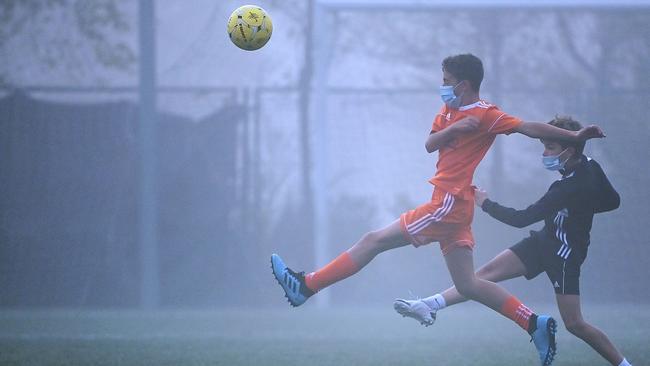
Katie Gibbons 7.20pm: Covid may age brain by 10 years
Coronavirus survivors may be at risk of lasting cognitive damage, according to a study that found that in the worst cases the infection can cause mental decline equivalent to an 8.5-point fall in IQ or the brain ageing 10 years.
The “brain fog” reported by many people weeks and months after their recovering from the virus may be a symptom of more serious cognitive deficits, scientists have said.
Research involving 84,285 people who had recovered from confirmed or suspected COVID-19 found that damage to the brain had happened to varying extents, depending upon the severity of the infection. However, more work is needed to identify how long this lasts.
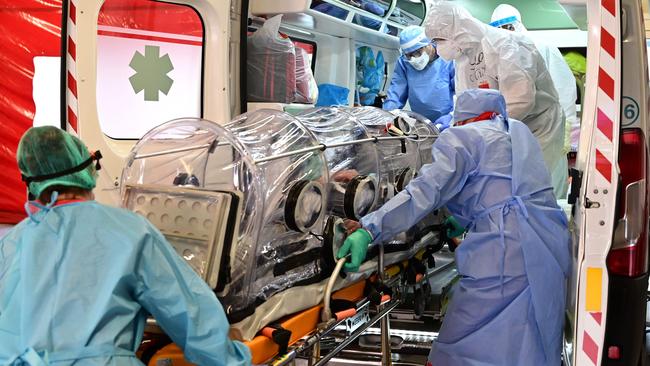
Olivia Caisley 6.50pm: Aged-care complaints spike
The aged-care watchdog has received more than 2000 COVID-19-related complaints since the beginning of the pandemic, Senate Estimates has heard.
Aged Care Quality and Safety Commissioner Janet Anderson told a hearing on Tuesday that the regulator had received 2163 complaints regarding the handling of the coronavirus across the nation’s aged care facilities since the beginning of the year.
“We have seen a general growth in the number of complaints and that is independent of any pandemic,” Ms Anderson said on Tuesday.
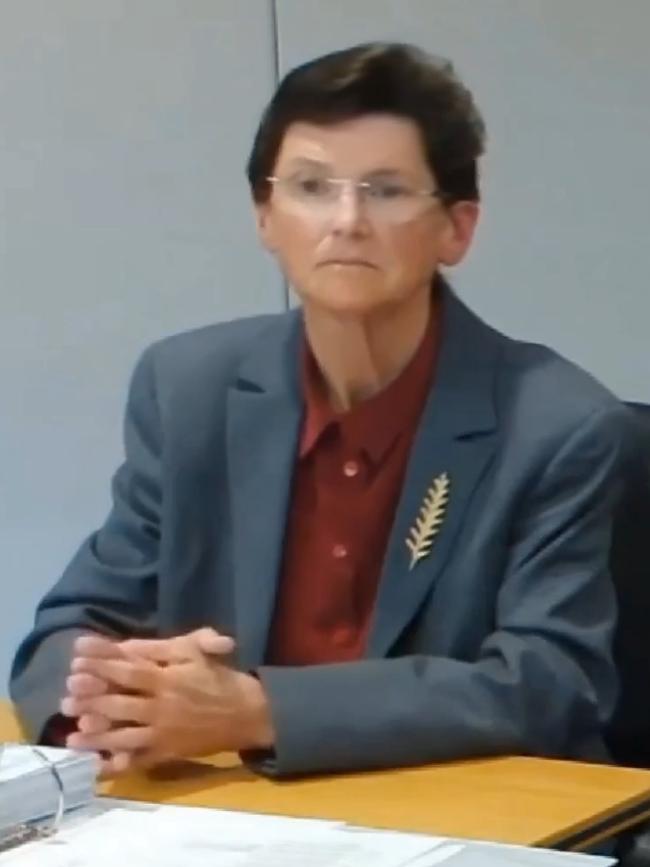
She told the hearing that complaints rose from 7828 in the 2018/19 financial year to 8539 in 2019/20.
“Year on year we have seen growth (in complaints), that is about a nine per cent growth,” Ms Anderson said. “Some of that 8539 is what we call COVID-related so it has to do with concerns about restrictions... infection control.”
Last month The Australian revealed that complaints to the aged care watchdog soared in the months between Victoria’s first and second waves, increasing by almost 50 per cent on the previous quarter.
A total of 2119 complaints were recorded by the commission between April and June this year, with the majority stemming from infection control, lack of family consultation and communication concerns.
Earlier, Aged Care Minister Richard Colbeck refused to apologise for the government’s handling of the coronavirus in aged-care homes, where 683 Australians have died.
“I don’t feel responsible personally for the deaths that have occurred, as tragic as they all are, which have been caused by COVID-19,” Senator Colbeck said. “The thing that would have saved lives is the prevention of the escape of COVID-19 in Victoria leading to the second wave.
“That’s the thing that could have saved lives.”
READ MORE: Coronavirus could age the brain by 10 years
David Ross 6.17pm: Health alert after virus detected in Sydney sewage
NSW Health is calling for more people to come forward for testing after fragments of COVID-19 turned up in sewage samples at a treatment plant in Glenfield in south
western Sydney.
The samples surveyed by NSW Health could reflect current infections of COVID-19 or recent cases diagnosed in the area in recent weeks.
However, NSW Health is strongly concerned there could be more active cases in the community, with some people incorrectly assuming they only have a cold.
South western Sydney has long been an area of concern for hidden COVID-19 infections.
The plant that detected the COVID-19 viral traces services the areas of: Airds, Ambarvale, Appin, Bardia, Blair Athol, Blairmount, Bow Bowing, Bradbury, Campbelltown, Casula, Claymore, Eagle Vale, Englorie Park, Eschol Park, Glen Alpine, Glenfield, Ingleburn, Kearns, Leumeah, Macquarie Fields, Macquarie Links, Menangle Park, Minto, Raby, Rosemeadow, Ruse, St Andrews, St Helens Park, Varroville and Woodbine.
There are several testing clinics throughout south western Sydney where people can get tested.
READ MORE: Covid may age brain by 10 years
Ewin Hannan 5.48pm: CFMEU threat to supply of eggs
Threatened rolling strikes by the CFMEU against a major egg carton supplier could disrupt the supply of eggs to supermarkets, cafes and restaurants, with the company attacking union demands for annual four per cent pay rises during a recession.
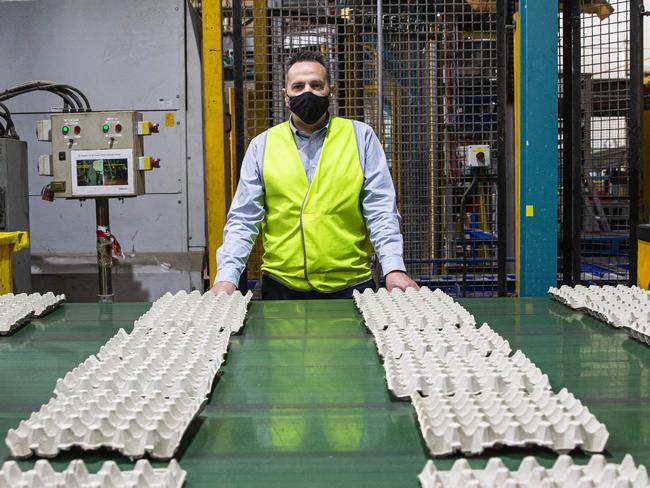
Huhtamaki, which claims to be responsible for 70 per cent of the nation’s egg packaging, said the union’s planned stoppages at its Preston factory in Melbourne’s north from Friday would impact the daily packaging of 7.5 million eggs across Australia.
John Sartori, general manager of Huhtamaki Fiber Packaging Oceania, said the industrial action would cut the factory’s output by 70 per cent, immediately impacting more than one third of its customers.
“Huhtamaki is extremely concerned about the impact the industrial disruption will have on the supply of egg cartons to its customers and, in turn, on the supply of eggs to families and businesses around Australia,” Mr Sartori said.
Huhtamaki operates in 35 countries and has its head office in FInland. Due to the COVID-19 pandemic restricting imported supplies of egg cartons, many customers were already waiting 12 to 18 weeks for delivery of orders. Mr Sartori said the company was currently supplying about 90 per cent of Australia’s egg cartons.
Jack Paynter 5.30pm: Andrews still in anti-lockdown protesters’ sights
Melbourne’s strict lockdown comes to an end on Tuesday night, but protesters are still planning to carry on with their next rally on Melbourne Cup Day.
Anti-lockdown protesters are planning to carry on with their next rally despite Melbourne’s strict lockdown coming to an end on Tuesday night.
Protesters are planning to hit the city’s streets again ahead of the next easing of coronavirus restrictions on November 8.
The Freedom Day demonstrators are now planning to march at Victorian parliament on Spring Street on Melbourne Cup Day to demand that Premier Daniel Andrews be sacked.
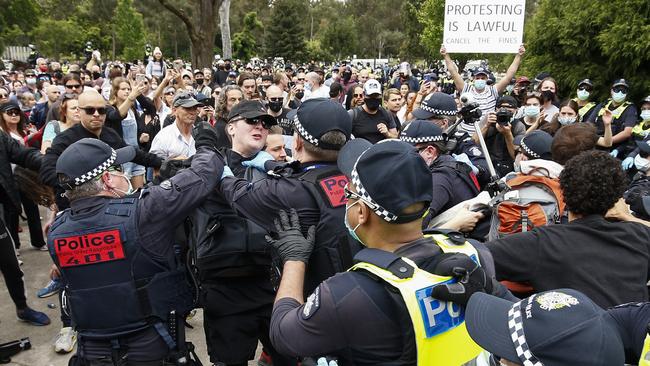
Organisers declared they would “fight on” on Monday after the Premier announced the lockdown would come to an end at 11.59pm on Tuesday night, with businesses allowed to reopen and Melburnians allowed to have two adult visitors in their home each day.
The organisers said there were “no guarantees” that Melbourne wouldn’t return to a strict lockdown if virus cases started to increase again.
Organisers have hailed last Friday’s protest a huge success after as many as 2000 people marched along St Kilda Road and say the movement won’t stop until the Premier has resigned or been removed from office.
READ THE FULL STORY here.
Rachel Baxendale 4.45pm: Masks, work, Halloween: what Victorians need to know
The Andrews government has issued the following clarifications on coronavirus restrictions as Victorians prepare to be released from 111 days of stay-at-home lockdown from 11.59pm on Tuesday:
Masks
The rules and exemptions on masks remain as they were under the previous step of restrictions. Everyone over the age of 12 years must wear a mask when they leave the house unless they have a lawful exemption, for example due to health reasons.
One of the exemptions is when someone is performing strenuous exercise – including things that leave you out of breath, including jogging.
The approach that people should take is that wearing a mask is always preferred. In a gym this is likely to mean that when running on a treadmill you don’t wear a mask, but you do wear a mask if you are doing bench weights, stretching or doing pilates.
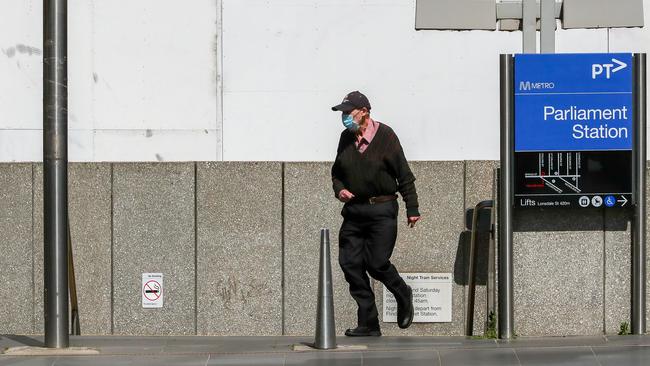
The strenuous nature of exercise within a gym is one of the reasons for the 1 person per 8 square metres’ rule – this means there are fewer people in the space and if more people are wearing masks, there is a greater protective barrier against this.
Home businesses
Retail businesses that operate from home and are allowed to open under the Third Step can resume, such as a hairdresser. For a person to operate out of their home, they must have a discrete retail area, including:
- a dedicated premises for the business to operate that is separate from the place of residence in all aspects (e.g. workers or clients cannot enter the residence)
- another entrance for workers and clients that is separate to the residence no sharing of facilities (e.g. toilets; kitchen etc.).
Home businesses must have a COVIDSafe plan and are subject to the density quotient and cleaning requirements as per other retail settings. Face masks must be worn by the worker and client at all times.
Workers within the home
Cleaners and maintenance workers may attend a home to provide services under the Third Step. Such workers should be kept to the minimum necessary and must wear a mask. People who enter the home for work purposes do not count toward the daily visitor cap.
Halloween
Under the Third Step in regional Victoria and in metropolitan Melbourne, there are no limits on the reasons that you can leave your home.
This means that activities such as trick-or-treating at Halloween could take place so long as they are contactless.
Anyone trick or treating must abide by the restrictions that are in place – a limit of 10 people that can gather outdoors, and in Melbourne – the 25km limit on how far you can travel from your home for recreational or social reasons.
Private gathering restrictions also prevent people entering property, including front yards and door knocking – so contactless or outdoor gatherings within limits is the best approach.
Trick or treating should also be done while taking all the usual precautions that remain so important – washing your hands regularly or using an alcohol-based hand sanitiser, keeping at least 1.5 metres away from others and adults and children over 12 years of age wearing a mask.
Max Maddison 4.15pm: Shops count down to midnight opening
Kmart and Spotlight will reopen their Melbourne stores at 11.59pm tonight to celebrate the relaxation of phase-two restrictions, as other retailers lean on technology to ensure their stores are COVIDSafe.
After 111 days of shuttered doors, Melbourne’s retailers have been given the green light to reopen at midnight on Tuesday and some of Australia’s most recognisable brand names have announced special hours to coincide with the easing of restrictions.
Twelve Spotlight stores across metropolitan Melbourne will trade from 11.59pm on Tuesday until 8pm on Wednesday. This includes: Bayswater, Box Hill, Cranbourne, Essendon, Fountain Gate, Frankston, Hoppers Crossing, Maribyrnong, Mentone, Preston, South Morang and Watergardens.
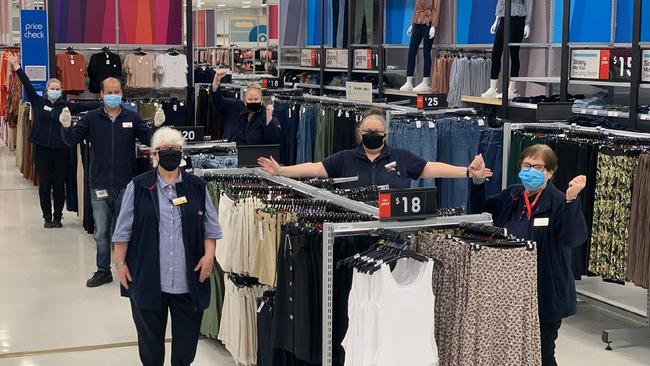
The other stores will reopen at 9am on Wednesday.
Selected Kmart stores will also reopen their doors at midnight, including Burwood, Campbellfield, Fountain Gate, Belmont and Werribee will open from midnight, with the others opening at 8am on Wednesday.
As part of 72 new COVIDSafe processes, stores will also implement a virtual queuing system, along with the ability for customers to book a time to shop online, allowing them to avoid lengthy lines.
Cutting-edge technology will also be implemented across Vicinity’s – the owner of Westfield – 20 shopping centres in Melbourne, including real-time data enabling shoppers to plan their visits and avoid busy periods. Updated every 15 minutes, the data will show the current numbers of shoppers, along with forecasts for the day and week ahead.
READ MORE: Open borders to rekindle the vitality of Federation
Rachel Baxendale 4.00pm: No positive results in 48 hours, cluster ‘steady’
There have now been 18,417 coronavirus tests processed from Melbourne’s northern suburbs since October 20, with no positive results in the 48 hours to Tuesday, and the cluster steady at 39 cases, 22 of which remain active.
Victoria’s other key active clusters on Tuesday are the Box Hill Hospital cluster, which was the source of the northern suburbs outbreak, with 15 cases, five of which remain active, and a southeastern suburban community cluster of nine cases, three of which are active.
Testing sites remain open across Victoria and people with symptoms are still strongly encouraged to get tested, especially in the northern suburbs, where there are 16 testing sites across the five affected local government areas of Banyule, Darebin, Hume, Moreland and Nillumbik.
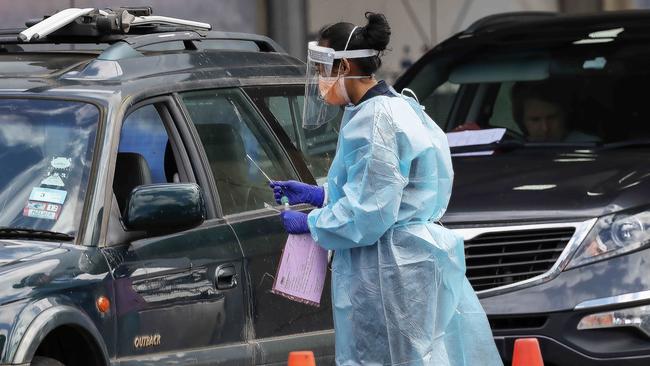
There have now been 20,341 cases of coronavirus in Victoria since the pandemic began, and 817 deaths, including 650 linked to aged care.
All but 19 of the deaths and all of the aged care deaths occurred as a result of the second wave of the virus caused by breaches in the Andrews government’s hotel quarantine program.
There are 19,370 people who have recovered having had the virus in Victoria, with 87 cases still active.
Of the total number of cases, 18,944 have been in people from metropolitan Melbourne and 1201 from regional Victoria.
The total cases include 9700 men and 10,628 women, with the gender split due in large part to the demographics of aged care facilities.
The total number of cases includes 3581 health workers, including aged care and disability sector workers, with seven active health worker cases and four cases linked to aged care facilities as of Tuesday.
Victoria has now had 4276 cases of coronavirus for which contact tracers have been unable to establish a source of infection – steady since Monday.
These include six in the most recent fortnight for which the statistic is available, spanning October 11 to 24.
READ MORE: Jim’s Mowing desperate for workers
Charlie Peel 3.39pm: Frecklington takes pitch to Queensland’s regions
Deb Frecklington has capped off a whirlwind tour of the regions with a quick stop in central Queensland before returning to Brisbane on Tuesday afternoon.
Speaking at a heavy equipment firm in Rockhampton, held by Labor’s Barry O’Rourke with a 5.2 per cent margin, Ms Frecklinton outlined her commitments to the region.
She said only an LNP government would understand the regions and the resources industry.
Ms Frecklington rebuffed calls from Labor ministers asking her to denounce Clive Palmer’s claims Labor would introduce a death tax.
She said she was focused only on her campaign and alleged the Palaszczuk government was crying foul over the death tax in a bid to drown out criticism of Labor’s costings.
It was revealed on Monday that a re-elected Palaszczuk government would require Queensland Health to make $1bn in savings measures to be able to afford its election commitments.
“The Labor Party today are desperately trying to take the focus off Labor’s $1bn health efficiency dividend that they are ripping out of Queensland Health,” Ms Frecklington said.
“That is a shocking display of getting rid of the health department budget during a pandemic.
“The LNP would never do that.”
READ MORE: LNP leader backs Beattie’s borders plea
PATRICK COMMINS 3.00pm: We believe recession is now over: RBA
Reserve Bank deputy governor Guy Debelle has said the bank now believes the country’s first recession in three decades ended in the September quarter, saying “as best as we can tell the growth elsewhere in the country was more than the drag from Victoria”.
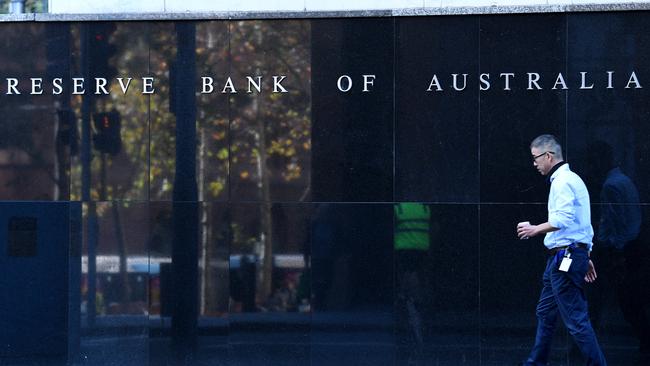
Ahead of a highly anticipated RBA board meeting next Tuesday — when the cash and three-year rate targets are likely to be cut by a further 0.15 percentage points to 0.1 per cent — Dr Debelle told senate estimates that “our best guess is it looks like the September quarter for the country recorded positive growth rather than slightly negative”.
“And as best as we can tell the growth elsewhere in the country was more than the drag from Victoria, and possibly the drag from Victoria was a little less than what we guessed back in August,” he said.
The RBA will release a new set of forecasts in its quarterly Statement on Monetary Policy (SOMP) next Friday.
The bank’s August SOMP said “the effects of the heightened activity restrictions in Victoria are likely to offset the pick-up in GDP growth in other parts of the economy in the September quarter”.
READ MORE: Trading Day — worst day in a month for ASX
Paige Taylor 2.56pm: WA won’t be rushing to open borders
West Australian premier Mark McGowan says his government must “continue to be cautious” in considering when and how to bring down the state’s hard border with the rest of Australia.
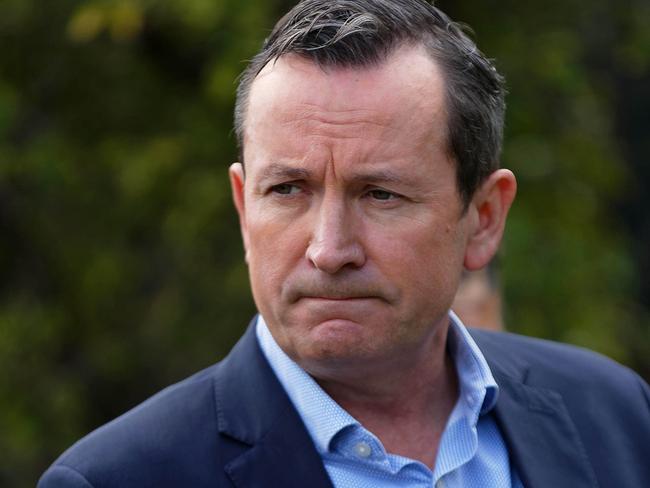
WA chief health officer Andy Robertson’s last advice to the McGowan Labor government was that it could reconsider the state’s tough interstate border regime once Victoria recorded fewer than five coronavirus cases a day on a rolling five day average. Asked for his views now that the exact scenario Dr Robertson stipulated was approaching, Mr McGowan said he would act when Dr Robertson provided new advice. Mr McGowan declined to say if he was considering a staged approach to bringing down WA’s interstate border rules or if he would take the border down all at once. This, he said, would depend on the advice Dr Robertson provided.
WA has not recorded a case of coronavirus in the community for close to seven months.
“Most people just want to kept safe that is my perception,” Mr McGowan said.
“If you act in a rushed way — were we to open the borders internationally before we should, were we to open the
interstate borders before we should and the virus comes back and people die and we have to shut down the state and businesses were to close – nobody would thank us and they would say why did you do that?
“And so we are going to continue to be cautious.”
READ MORE: Pandemic fatigue is real — and it’s spreading
Matthew Denholm 2.55pm: Tasmania to open borders to NSW residents next week
Tasmania will open to quarantine-free arrivals from NSW on November 6, but Victorians are likely to have to wait until early December.
The island state opened its borders to all other jurisdictions on Monday and Premier Peter Gutwein said none of the initial arrivals had needed to be sent for COVID-19 testing.
Director of Public Health Mark Veitch said the situation in Victoria was still under review but he hoped to provide advice on allowing visitors from that state in time for a possible resumption on December 1.
Richard Ferguson 2.40pm: Victory in Victoria ‘belongs to the people’
Josh Frydenberg has declared Victoria’s zero cases of coronavirus are the people’s victory and no-one else’s, as he lashed out at federal Labor’s defence of the Andrews government.
At the beginning of question time, Anthony Albanese moved a motion congratulating Victorians on their success in defeating the second COVID-19 wave and conveying that message to Mr Andrews.
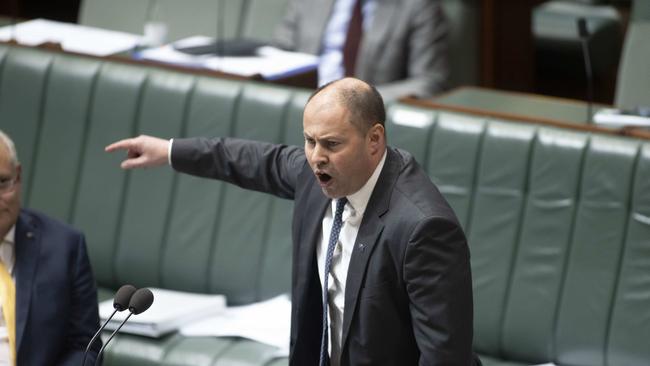
Deputy opposition leader Richard Marles went on to praise Victorian Premier Daniel Andrews’s response to the second wave.
“There have been mistakes, and the Victorian government established a judicial inquiry immediately, which is working through those issues as we speak,” he said.
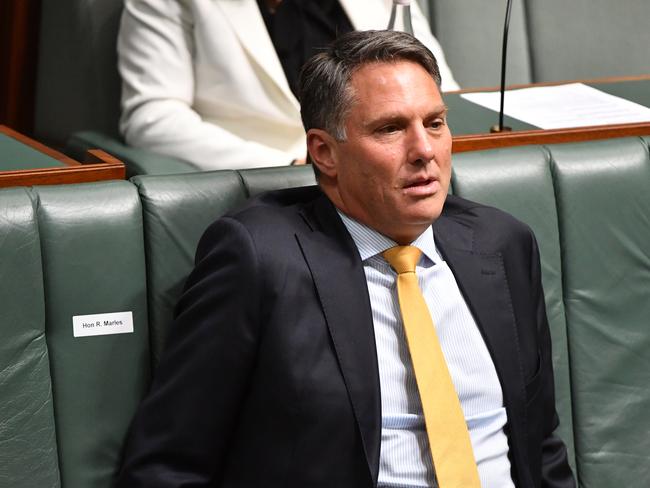
“But the Victorian government has also been a source of crystal clear decisions, at the heart of which has been the very best medical advice, which has guided us from where we were back in July to where we are right now.”
The Morrison government backed the motion, but the Opposition Leader’s comparison between Victoria and Europe’s second wave provided a passionate response from the Treasurer.
Mr Frydenberg said Victoria and its children had fallen significantly behind due to the lockdowns.
“The Victorian people have been magnificent. They have seen their dedication and their commitment to adhering to the rules … it is their victory, and no-one else’s,” he said.
“The comparison is not with the United Kingdom, the comparison is not with the United States, the comparison is with New South Wales, Queensland, Tasmania, and South Australia.
“My children are like the children of everyone else from Victoria in this place. Six months lost from schooling, six months that they will never ever get back.”
Mr Frydenberg also pointedly criticised the Andrews government’s lockdown policies.
“My thoughts today are with those Victorians who weren’t allowed out at night because of a curfew that we did not see in other parts of this country. My thoughts are today with those Victorians that have been fined $10,000 for opening their business and trying to put food on the table, and keep their staff employed,” Mr Frydenberg said.
“My thoughts today are with those families of those people who have suffered with mental
health concerns as a result of the lockdown.”
READ MORE: Zero to Hero: Dan opens at last
Max Maddison 2.13pm: Cosgrove: What’s wrong with our soldiers
Former governor-general Sir Peter Cosgrove has weighed in on what the contributing factors to soldiers stepping “over the line” during alleged war crimes in Afghanistan might be.
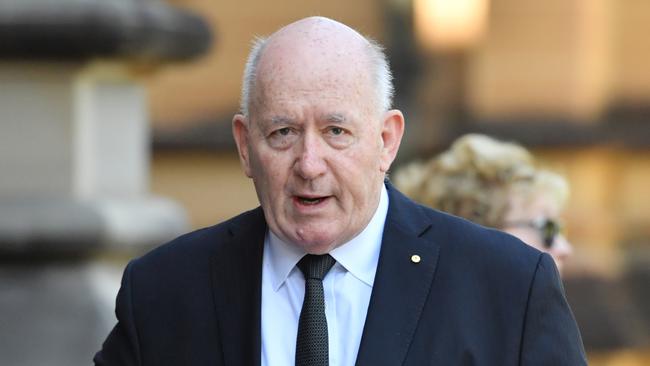
READ the full story here
Imogen Reid 2.00pm: Fresh study finds spread risk in schools is low
A study into the spread of coronavirus in schools across New South Wales found that just 33 cases of secondary transmission occurred during term 3, despite thousands being exposed to the virus.
Researchers at the National Centre for Immunisation Research and Surveillance (NCIRS) and the University of Sydney said the 33 pupils or educators that were infected with coronavirus by a fellow student or staff member amounted to an overall transmission rate of less than 1 per cent.
Of the 774 locally acquired cases reported in the state between July 4 and September 25, 39 were children or staff members across 12 primary schools, 16 high schools and early childcare centres or preschools, where a total of six cases were diagnosed.
Of these 33 secondary cases, five were in high schools and four in primary schools, registering a transmission rate of 1.1 per cent and 0.4 per cent respectively.
The team of experts found that 3824 pupils and teachers were considered to be close contacts after spending enough time with a positive case.
NCIRS Director Professor Kristine Macartney said the latest results show that the spread of coronavirus in schools and childcare centres in New South Wales to be extremely minimal.
“The findings of the report are consistent with other studies that have found children, especially primary school age and younger, appear less likely than adults to transmit COVID-19 to others,” she said.
“These results should provide confidence to families, schools and the wider community, especially given the context of low levels of COVID-19 in the general community in New South Wales.”
READ MORE: UK vaccine set for a roll out by Christmas
Staff writers 1.59pm: WATCH LIVE: Question Time in the House of Reps
Rachel Baxendale 1.53pm: ‘I can get my back waxed but can’t easily work out’
The gym industry says that more than 80 per cent of fitness centres will be operating at an unsustainable loss under the Andrews government’s reopening plan for metropolitan Melbourne.
From November 9, gyms in metropolitan Melbourne will be allowed to accommodate a maximum of 10 patrons per space and 20 per venue at any given time, with a maximum of one person per eight square metres, in line with current guidelines for regional Victoria.
Industry body Vic Active said a recent survey of members revealed most owners believed the restrictions would make reopening impractical, and many were considering remaining closed.
Vic Active spokesman Tim Schleiger said gyms had demonstrated they were serious about being COVID-safe and the Andrews government needed to “get fair dinkum” about the numbers of people allowed to exercise indoors.
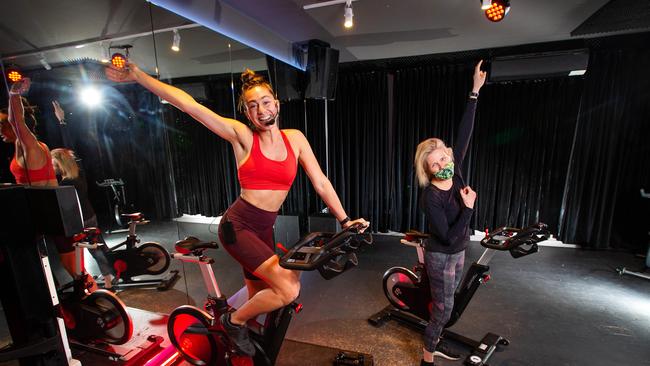
“More than one in three owners are considering not opening at all because they will be in deep loss-making territory,” Mr Schleiger said.
“These owners don’t have the capacity to carry more losses given they have essentially been shut since late March.
“Every other state and territory in Australia recognised that fitness centres are safe if they have COVID safe plans and practice established infection control measures.
“Victoria was the only state to keep us closed.”
Mr Schleiger said the Victorian fitness industry had produced a COVID-19 safe reopening plan based on the successful model used in NSW and Queensland.
“Data collected by Fitness Australia shows that from 7.31 million check-ins across 546 clubs in the first eight weeks after they reopened in NSW, there were zero cases of reported community transmission,” he said.
“It is also ironic that I can go to the bottle shop, get a tattoo and have my back waxed, but I can’t easily go to my local fitness centre and work out and hopefully improve my physical and mental health.
“Vic Active calls on the Andrews government to get fair dinkum. If it won’t let us operate reasonably then it’s time to provide support funding to the fitness industry as it has for events and entertainment.”
READ MORE: ‘We’d lose so much money if we opened’
Sarah Elks 1.34pm: Treasury official leaked ‘death tax’ plan: Palmer
Billionaire political party founder Clive Palmer claims he was told by an unnamed Treasury official Queensland Labor would introduce a death tax, despite the Palaszczuk government repeatedly calling him out for lying.
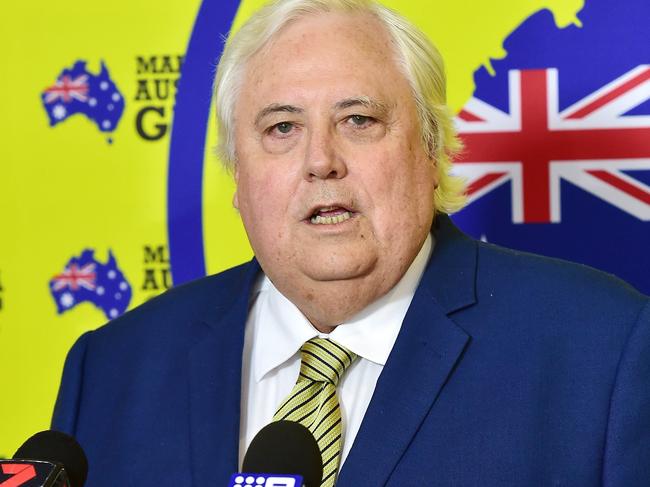
Mr Palmer said the death tax denials of senior Labor ministers – such as Treasurer Cameron Dick – could not be believed, because “you’d have to be crazy to believe any politician before an election”.
“Politicians don’t rank very much higher than used car salesmen when it comes to giving promises or making denials before an election,” he said.
Asked whether he could be believed – as a former federal MP and founder of the United Australia Party – Mr Palmer said: “you can, because I’m a former politician”.
READ the full story here
Greg Sheridan 1.12pm: Why Barrett’s confirmation is Trump’s greatest achievement
Tens of millions of Americans voted for Trump so that he would appoint conservative judges. He has kept his promise, with Amy Coney Barrett confirmed to the Supreme Court.
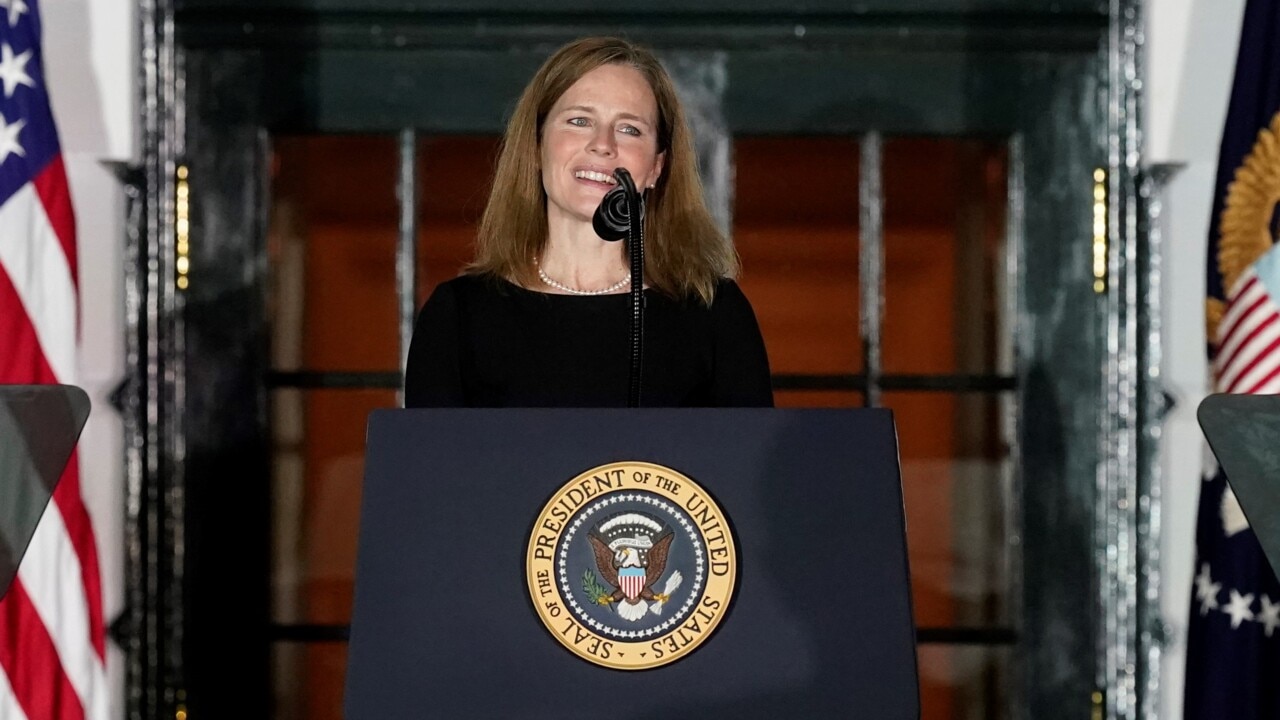
READ Greg Sheridan’s full commentary on Amy Coney Barrett here
Greg Brown 12.39pm: Morrison working on support for travel industry
Scott Morrison has told the Coalition party room he is working on providing further government support for the beleaguered travel agent industry.
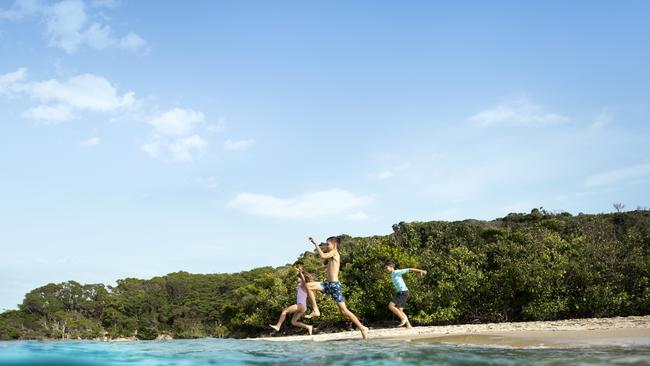
The Prime Minister said he was making “progress” on support measures for the sector in discussions with interest groups, in response to a question from Liberal MP Trent Zimmerman.
Liberal MPs in the room said they were under the impression there would be a new rescue package unveiled for the sector.
Also in party room, Liberal National MP Terry Young raised concerns about the amount of money self-funded retirees were losing, while Nationals MP Damien Drum called for a return of the work-for-the-dole program.
READ MORE: Are you brave enough to take this photograph?
PATRICK COMMINS 12.28pm: ATO claws back ‘wrong’ JobKeeper payments
The Tax Office has clawed back $120m of the $69bn in JobKeeper payments after finding companies had made applications which were “recklessly or deliberately” wrong.
Appearing in Senate estimates this morning, ATO second commissioner Jeremy Hirschhorn said that a bit under $200m in wage subsidies have been stopped “in a permanent sense”, and that the ATO is looking at another $100m to assess whether it was eligible. The Tax Office has also halted future claims worth around $350m, where the ATO has “found somebody ineligible and chopped off” their payments, Mr Hirschhorn said.

Mr Hirschhorn said the ATO generally only claw back JobKeeper payments where “there has been deliberate or reckless mistake”.
Where there has been an honest mistake — and an employer has claimed in good faith and passed it on to employees in good faith and haven’t financially benefited – then tax officials will simply cancel future payments, he said.
In terms of the early release of super scheme, Mr Hirschhorn said only 0.3 per cent of applications have been found dodgy, which he said was “a very, very low level of fraud”.
The ATO has “not found systemic fraud” across the JobKeeper and business cash flow boost programs.
“We are very focused on fraud,” Mr Hirschhorn said.
READ MORE: Watchdogs aren’t supposed to guard Biden
Perry Williams 12.22pm: PM’s scheme ‘won’t lead to lower prices for gas’
The Morrison government’s planned gas reservation scheme will not lead to materially lower prices in the next decade while energy producers look to have dodged the risk of the policy affecting existing production with the scheme to only apply to future supplies, Credit Suisse says.
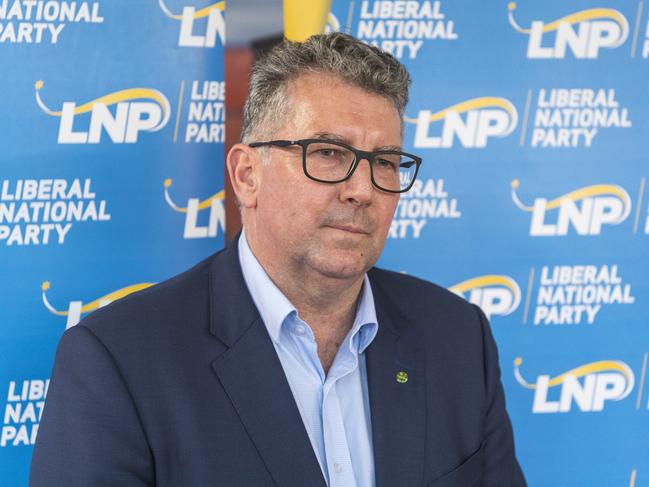
Resources Minister Keith Pitt on Tuesday kicked off the process of implementing a national gas reservation system, seeking input from state governments, gas companies and energy users before a “final decision is made” by June next year.
The reservation scheme is likely to proceed but will not materially lower prices, the broker said.
“A prospective reservation policy is unlikely to impact pricing materially for at least the next 5-10 years in our view,” Credit Suisse analyst Saul Kavonic said. “Every new molecule supplied to the market under reservation would simply be swapping out another molecule from existing fields that can instead go to export (the latter not being subject to reservation).”
Gas producers have dodged the real risk of a retrospective reservation policy although the issue of transport costs may prove a headache.
“The main market risk posed by the prospective reservation policy, if implemented poorly, is it could result in inefficient transport costs (new reserved supply may not be near local demand centres),” Mr Kavonic said. “So we suspect any policy may need to have flexibility to accommodate efficient allocation of gas possibly via swap arrangements.”
READ MORE: PM’s bid to calm nerves over gas reserve
Rosie Lewis 12.13pm: ‘Problematic October’: Albanese tries to rally troops
Anthony Albanese has attempted to rally his troops by declaring the Morrison government has had a “problematic October” and been “mired in scandal”.
Addressing caucus on Tuesday, the Opposition Leader praised his senators for their “extraordinary work” in estimates and pointed to the latest revelation out of hearings that just 10 per cent of the 450,000 jobs expected to be supported by the youth wage subsidy would be “genuinely” new.
“The government’s had a problematic October, to be polite,” Mr Albanese said, according to a party spokesman.
“While we have offered positive initiatives this government has been mired in scandal.”
Mr Albanese noted the more than $1m in taxpayer-funded market research commissioned by Treasury and the Department of Prime Minister and Cabinet that handed to Scott Morrison’s and Josh Frydenberg’s offices, as well as a failure by the Coalition to introduce a national integrity commission.
“Mr Morrison can spend a week doing LNP fundraisers in Queensland but he’s too busy to establish a national integrity commission,” the Labor leader said.
“The government has no vision for the economy. We do, especially in terms of productivity and women’s participation. The government has been treating taxpayers’ money as if it were their own.”
Federal Labor decided to write to Victorian Premier Daniel Andrews to “express their admiration” to Victorians for their sacrifices and achievements in combating the second wave of COVID-19.
Congratulatory letters will also be sent to New Zealand Prime Minister Jacinda Ardern and ACT Chief Minister Andrew Barr for their recent election wins, as well as a “good luck” note to Queensland Premier Annastacia Palaszczuk.
READ MORE: Sloan — Queensland’s fiscal ship listing, but who cares?
Charlie Peel 12.05pm: Frecklington agrees with Beattie on NSW border
Deb Frecklington says she shares common ground with former Labor premier Peter Beattie, who has called for Queensland’s border to be reopened to travellers from New South Wales.
Asked about Mr Beattie’s comments saying it was time Premier Annastacia Palaszczuk lifted the border restrictions, the Liberal National Party leader said she would “let the Labor Party have their own internal fights”.
“Peter Beattie and I have got one thing in common and that is that we believe in targets for unemployment in this great state of ours,” she said.
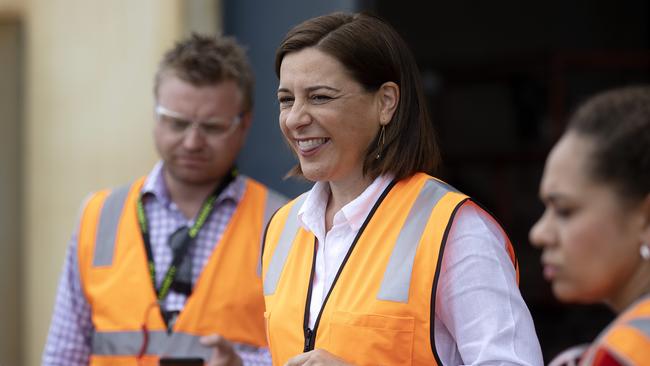
“That’s why I have set an ambitious target of 5 per cent.
“He did the same thing. It’s a shame the Labor Party has no plan and no ambition for this great state.”
“I’ll let the Labor have their own internal fights, what I want to do is talk about the LNP’s vision for Queensland.”
The LNP leader labelled Labor’s $1bn in savings measures within the health department needed to fund its election commitments as a “cut”, claiming Labor had been caught lying.
“With the LNP’s costings, there will be no cuts to Queensland Health, there will be no efficiency dividend in Queensland Health, like Labor have done,” Ms Frecklington said.
“Labor have been caught out in a lie, it is only the LNP that will create jobs in the health sector.”
The LNP will release its costings on Thursday.
READ MORE: Announcement on borders to be made by Friday: Palaszczuk
David Rogers 11.55am: ASX hits three-week low as sell-off deepens
Stocks have opened lower and tumbled further after a Wall Street rout, with heavyweights hit, and as Boral notched a $1.4bn sale.
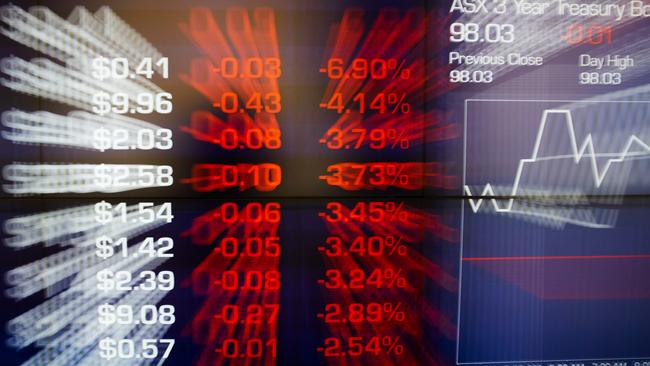
READ more live ASX updates at Trading Day
Imogen Reid 11.28am: NSW records two new local cases, hits 3m tests
Twelve new cases of COVID-19 were recorded in New South Wales overnight, two of which were locally transmitted.
NSW has reported two new cases of locally transmitted COVID-19 in the 24 hours to 8pm last night.
— NSW Health (@NSWHealth) October 26, 2020
Ten cases were also reported in overseas travellers in hotel quarantine, bringing the total number of cases in NSW to 4,209. pic.twitter.com/xF6jByNgiZ
The two locally acquired infections are household contacts of previously reported cases linked to the Oran Park community cluster. NSW Health said the cases have been in isolation since testing positive. The number of infections linked to the cluster is now 25.
The remaining 10 cases were diagnosed in overseas travellers who are in hotel quarantine.
New South Wales has hit a milestone in its fight against COVID-19, reaching three million tests since the pandemic began.
As of 8pm on Monday, the state recorded a total of 3,000,641 tests performed on 2,247,101 people. Of the people tested, 63.7 per cent had undergone one examination, while the remainder had presented for more than one check-up.
Premier Gladys Berejiklian said the amount of tests taken was an “incredible result,” but urged residents to remain vigilant as the state’s coronavirus restrictions continue to ease.
“I want to thank everyone in New South Wales who has come forward to be tested – three million COVID-19 tests is an incredible result,” Premier Gladys Berejiklian said.
“As we ease restrictions, it is critical that we maintain our high rates of testing which has been central to our success in limiting the spread of the virus and keeping New South Wales open.”
Health Minister Brad Hazzard said he hoped more COVID-19 rules will be lifted in the coming weeks, but reminded the community it comes down to keeping the level of local transmissions low.
“This is a stealthy virus and if we give it an inch, it will take a mile and undo a lot of good work,” Mr Hazzard said.
“The community response to COVID-19 has been fantastic and I thank the people of New South Wales for their efforts and sacrifices during the past nine months, which have put us in a position where we have been able to ease restrictions.”
Chief Health Officer Dr Kerry Chant said it was critical that people continue to come forward for testing to help the state’s contact tracing team track the source of infections.
“We have been able to get the recent clusters under control with the support of the community, but their emergence shows that the risk of a resurgence of cases in New South Wales remains very real,” she said.
READ MORE: The towns to get NBN upgrade first
Rachel Baxendale 10.59am: Andrews remains cautious on home visiting rules
Victorians will be able to visit each other’s homes once a day in family groups of up to two adults and dependent children from Wednesday, in rules Premier Daniel Andrews says will remain in place indefinitely.
Warning that homes are arguably “the most dangerous place for the spread of this virus”, Mr Andrews refused to set an exact date for a relaxation of the new rule, indicating it was likely to be in place beyond November 8, when the 25km travel restriction and ban on travel between regional Victoria and Melbourne are set to lapse.
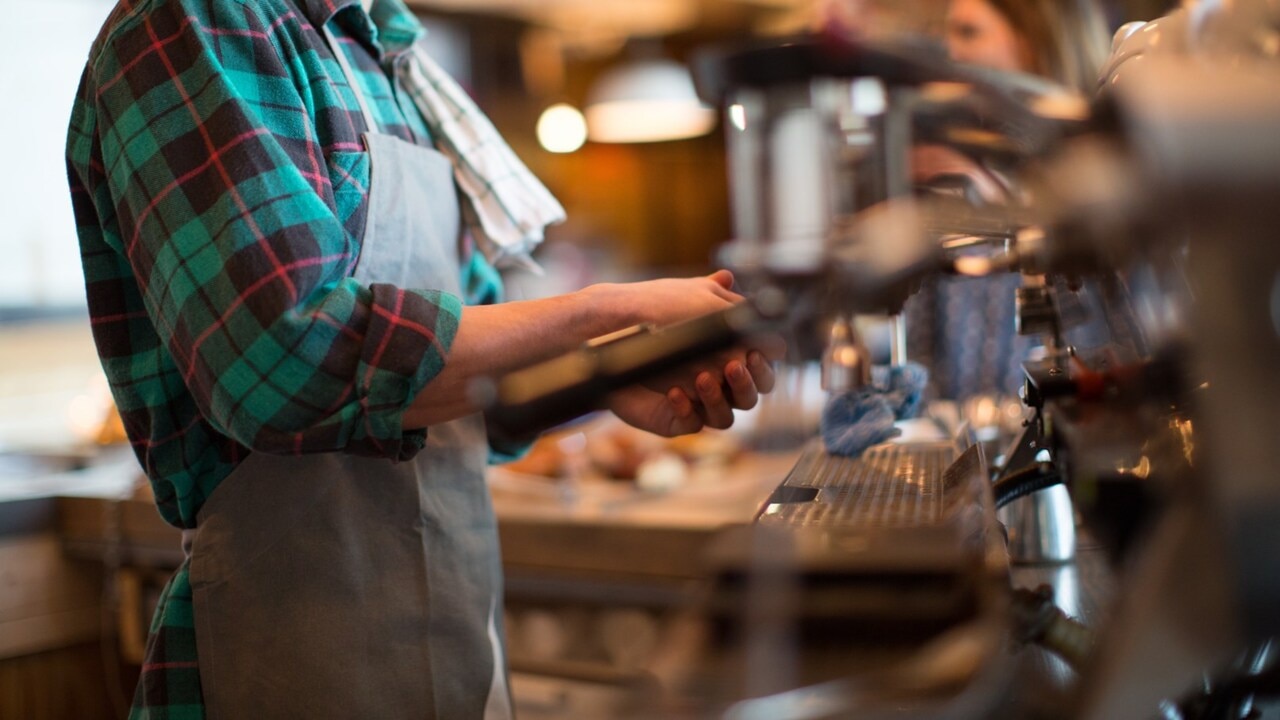
“I know that jars with people, may not sound right, but when you think about it, (homes are) where people let their guard down, where people are not being supervised, not like a cafe, not like going to the pub where it’s a licensed environment, a regulated environment, people are keeping their distance, there’s cleaning to that industrial standard, there’s all of that formality makes that a safer place in some ways than what normally people would regard as the most safe place – their own personal space, their own home,” he said.
From 11:59pm on Tuesday, up to two adults from one household will be able to visit another household with any dependent children who cannot be left at home.
Any member of a household visiting any other household counts as the one permitted visit per day for each of those households, meaning that if a child from a family visits another family, no other members of those families are able to visit other homes that day.
Up to 10 people from up to 10 households are now permitted to meet outside.
Mr Andrews said that while there was no way of policing it, people should wear masks where possible while visiting each other’s homes.
READ MORE: ‘Youth wage aid must rise by 50pc’
Rachel Baxendale 10.45am: Victoria’s active cases decreasing
Victoria now has 87 active cases of coronavirus — a decrease of four since Monday — after the state recorded two consecutive days with no new cases for the first time since March 6, when there had been just 10 cases since the pandemic began.
As of Tuesday there are five people in Victorian hospitals with coronavirus, down from seven on Monday. None are in intensive care.
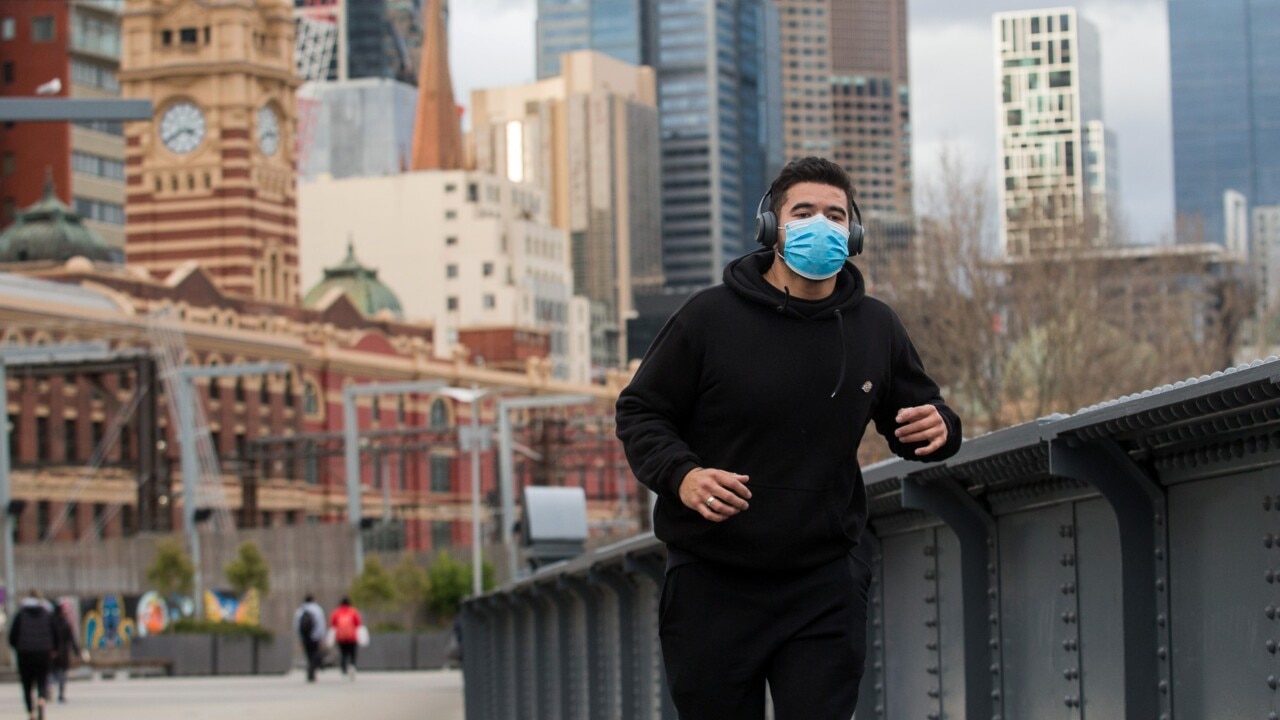
There have been 3,081,980 coronavirus tests processed in Victoria since the pandemic began, including 15,479 in the 24 hours to Tuesday.
There are seven active cases among health workers — an increase of one since Monday after a previously reported case was reclassified.
There are four active cases linked to aged care — the same number as on Monday.
Of the 87 active cases, 85 are in Melbourne and the remaining two are in the northern Victorian town of Shepparton.
Cameron Stewart 10.38am: Barrett set to be confirmed to Supreme Court
Amy Barrett is set to be confirmed as the new Justice of the Supreme Court after the Senate approved her nomination, delivering Donald Trump a major victory on the eve of the election.
The vote means the 48-year-old Ms Barrett will become the third conservative judge to be appointed in the president’s first term. Because she is appointed for life, it is an outcome which will shape the decisions of the nation’s highest court for a generation, impacting issues from health care to abortion to gun rights and labour and anti-discrimination laws.
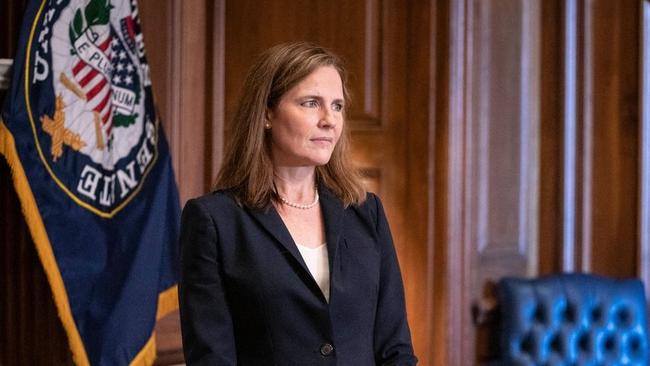
Ms Barrett was due to be officially sworn in by Supreme Court Justice Clarence Thomas at a ceremony at the White House Tuesday (AEDT).
READ the full story here
BEN PACKHAM 10.27am: Chopper door too narrow to fit gun-mount
Defence officials have told Senate estimates the door on the army’s $3.8bn MRH-90 Taipan helicopters is too narrow to allow its gun to fire while troops are rappelling from the aircraft.
Officials said the department had tried three different designs of the gun mount for the European-designed helicopter — which was purchased as a fully-capable helicopter — but none would allow soldiers to exit the aircraft while it was delivering suppressing fire.
“It is not an issue of the gun mount design. It is an issue of the width of the door,” Defence’s helicopter capability and sustainment head Shane Fairweather said.
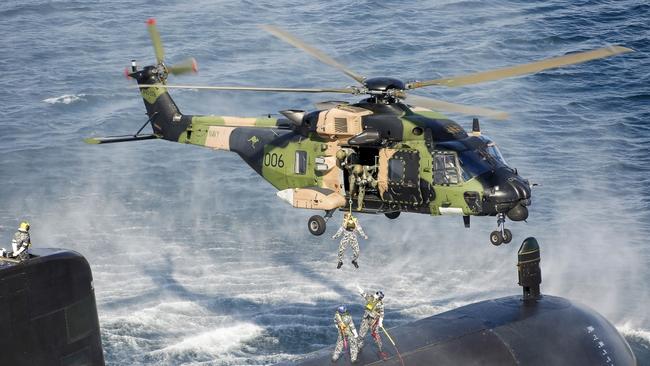
“The door isn’t wide enough to enable the safe exit whilst firing is taking place.”
The Senate’s foreign affairs and defence committee heard “tactical workarounds” had been developed, in which a second helicopter would cover a helicopter with rappelling soldiers.
Chief of Defence Angus Campbell defended the MRH-90 as an “extraordinary helicopter” which would not be flown alone.
“You are quite right — there is an issue with the door gun. We know it, we are working on it,” he said.
But he said the “tactical effect” of delivering troops to the ground while laying down suppressing fire could still be achieved.
“It requires a careful planning of the employment of our aircraft. We never fly an aircraft on its own.”
Chief of Navy Mike Noonan told Senate Estimates the cargo hook on the navy’s MRH-90 had also been an “ongoing problem”, but a solution was expected soon.
Senate estimates heard the navy’s MRH-90 helicopters were set to be replaced just three years after reaching final operating capability, as the service looks to procure a single helicopter to perform different roles.
Mr Fairweather said the MRH-90s were “highly advanced” but had “a number of issues around maintainability, technical response, (and) supply chain surety”.
“Australia was the fleet leader by some way, which is not where we intended to be,” he said.
“So we have hit all the problems for the first time, around the airframe.”
READ MORE: Backlash over Dan’s ‘top shelf’ drink
Rachel Baxendale 10.13am: Andrews to provide update at 10.30am
With restrictions set to ease in Melbourne tonight and another day of zero cases and new deaths recorded, there are expectations Victoria’s Premier will have more to say on private gatherings today.
READ MORE: Quarantine inquiry to make extension call
EWIN HANNAN 10.05am: Taxpayer legal bill for AWU blows out to $1.33m
The Registered Organisations Commission has spent more than $1.33 million in taxpayers funds in legal proceedings against the Australian Workers Union.

At Senate estimates on Tuesday, Registered Organisations Commissioner Mark Bielecki said $344,881 had been spent so far on lawyers appealing a Federal Court decision quashing a ROC probe into AWU.
He said $992,714 had previously been spent on the case, taking the total amount spent to $1.337 million.
Mr Bielecki left open the prospect of the ROC pursuing the matter to the High Court if it lost the appeal to the full Federal Court.
The ROC appeal means documents seized from the AWU during controversial raids in 2017 remain with the Australian Federal Police pending the appeal outcome.
Federal Court judge Mordy Bromberg found in 2019 that the ROC did not have reasonable grounds for investigating the Australian Workers Union.
He upheld one of five grounds challenging the validity of the regulator’s probe into the authorisation of AWU donations to GetUp and Labor candidates when Bill Shorten was the union’s leader.
He upheld the AWU’s contention the ROC could not be validly satisfied there were reasonable grounds for conducting the investigation into whether the union’s financial probity obligations had been contravened.
READ MORE: Labor targets Porter in federal seat shake-up
Rachel Baxendale 9.52am: Mikakos takes swipe at Andrews’ chief of staff
Former Victorian health minister Jenny Mikakos has taken a swipe at Daniel Andrews’ chief of staff Lissie Ratcliff, appearing to blame Ms Ratcliff and the Premier’s private office for a tweet directed at her by a Twitter troll.
In response to news from the Department of Health and Human Services that Victoria has achieved its second consecutive day with no new coronavirus cases since March, a Twitter user “contessa”, using the handle @contess91095837, tweeted at Ms Mikakos: “Anything to add Jenny? @JennyMikakos”.
Anything to add Jenny? @JennyMikakos
— contessa (@contess91095837) October 26, 2020
In response, Ms Mikakos retweeted the tweet with the caption: “PPO trolls come out to play. You should be embarrassed @lissieratcliff”
The exchange comes after Ms Mikakos hit out at the Premier as he announced a “cautious pause” on promised reopening plans on Sunday, receiving sustained abuse from Andrews fans on the social media platform after she tweeted: “Vic has met the under 5 (cases 14 day average) threshold which some thought was unachievable. This was a very cautious target. 6/7 of new cases are related to a known outbreak so the risk is manageable. The set reopening is gradual & safe so any delay is unnecessary. It’s paralysis in decision-making.”
Vic has met the under 5 threshold which some thought was unachievable. This was a very cautious target. 6/7 of new cases are related to a known outbreak so the risk is manageable. The set reopening is gradual & safe so any delay is unnecessary. It’s paralysis in decision-making.
— Jenny Mikakos #StaySafeSaveLives (@JennyMikakos) October 24, 2020
The @contess91095837 account has no followers and only follows the Department of Health and Human Services.
It first tweeted on October 9 and has issued 261 tweets since, many of which feature misogynistic, abuse-laded attacks on female journalists and claims that Jewish families have not been adhering to coronavirus restrictions.
One recent tweet appears to reference experience working for Ms Mikakos accusing her of being “rude” and “ignorant” and using expletives to describe what she was like “to work for”.
Ms Mikakos has since deleted her tweet.
READ MORE: Gottliebsen — Hidden faces behind Holgate’s assassination
Greg Brown 9.48am: Appetite for curbing population growth to rise
Bipartisan support for high levels of immigration is unlikely to continue after the COVID-19 crisis because voter appetite for curbing population growth will increase, according to the Australian Population Research Institute.
A report by the think tank — written by academics Bob Birrell and Katharine Betts — uses data from a survey in November 2019 to claim half of Australians want to reduce immigration levels.
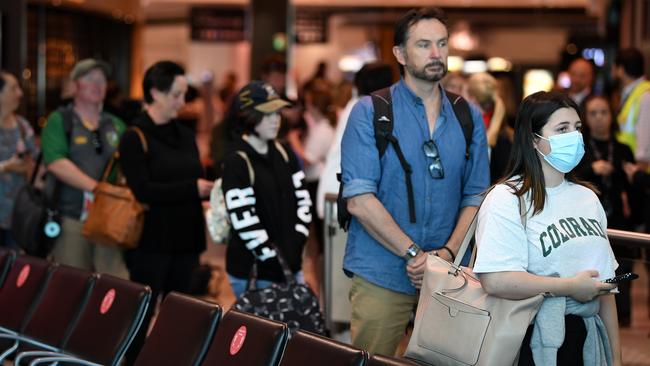
“At least half the electorate is concerned about the effects of rapid immigration-fuelled population growth on their quality of life. The conditions that made it possible to sustain a Big Australia and ignore this concern no longer exist in the post-COVID environment,” the report says.
“The stock of voters at risk in a labour market deep in a COVID-induced recession is large. So is the number of those fearful of the health consequences of further high immigration, and potentially deeply resentful of actions that would mock the sacrifices they have made.
“If the Coalition, or Labor, does try to revive a Big Australia many of these voters would respond readily to any attempt to mobilise them. In such circumstances immigration would become a public issue, far more salient to the electorate than was the case before the virus.”
READ the full story here
Anthony Piovesan 9.21am: Jim’s Mowing searching for thousands to work
Australia’s leading mowing and gardening service is looking to employ thousands of extra franchisees after requests for work surged during the COVID-19 pandemic.
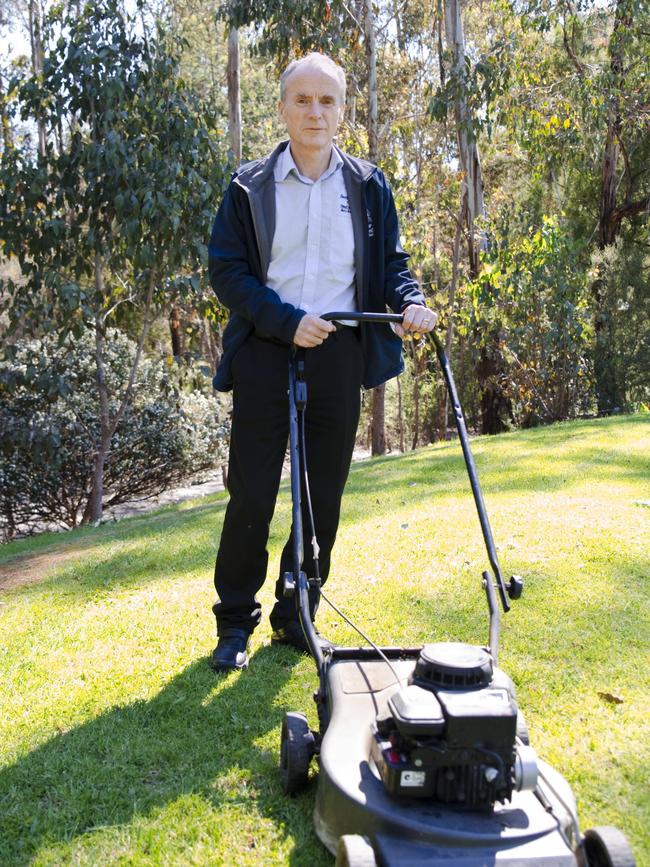
Jim’s Mowing owner Jim Penman said job requests were up 13 per cent since the start of the pandemic in March, with requests unable to be serviced due to the lockdown.
“We‘ve actually had our fastest growth in franchisees for more than a decade, up to 4133 as of today, though some of these are suspended due to the Victorian lockdown and other reasons,” he said.
“There is enough pent-up demand for us to put on 2-3000 more people, including franchisees and their workers.”
Employment in Victoria fell by 36,000 jobs in September, following a further 37,000 drop in August, meaning more than 73,000 jobs were lost across the two months.
According to the Australian Bureau of Statistics, Australia’s unemployment rate also inched higher to 6.9 per cent in September from 6.8 per cent in August.
But there was hope the economy can start to rebuild with Victorians waking up to their final day of lockdown measures on Tuesday.
“People are talking about a long road to recovery which may be the case, but there are areas of the economy like ours that could go explode and is exploding,” Mr Penman said.
Since March there have been nearly 30,000 requests for lawn mowing, almost 21,000 requests for antenna repairs and maintenance, 15,515 jobs in dog washing and 12,616 in fencing.
Mr Penman said there was also demand in car detailing, carpet cleaning, termite and pest control, tree maintenance, and window and pressure cleaning.
But despite the positive news Mr Penman was still determined to chase compensation for his 700 franchisees who he said were “unfairly prevented from working” amid Victoria’s harsh lockdown.
The mowing magnate said his franchisees and respective self-employed tradesmen had been affected over about 12 weeks of lockdown, losing about $3000 a week.
The 700 franchisees have also joined a Carbone Lawyers multi-million-dollar class action against the Victorian government, pushing for about $20 million in compensation. — NCA Newswire
READ MORE: John Ferguson — Reason for hope on road to abnormality
Imogen Reid 9.05am: ‘Whoever wins Queensland inherits economic tsunami’
Former Queensland Labor Premier Peter Beattie says now is the time for Queensland to reopen its borders, and has warned that whoever wins the upcoming state election will be hit with an “economic tsunami”.
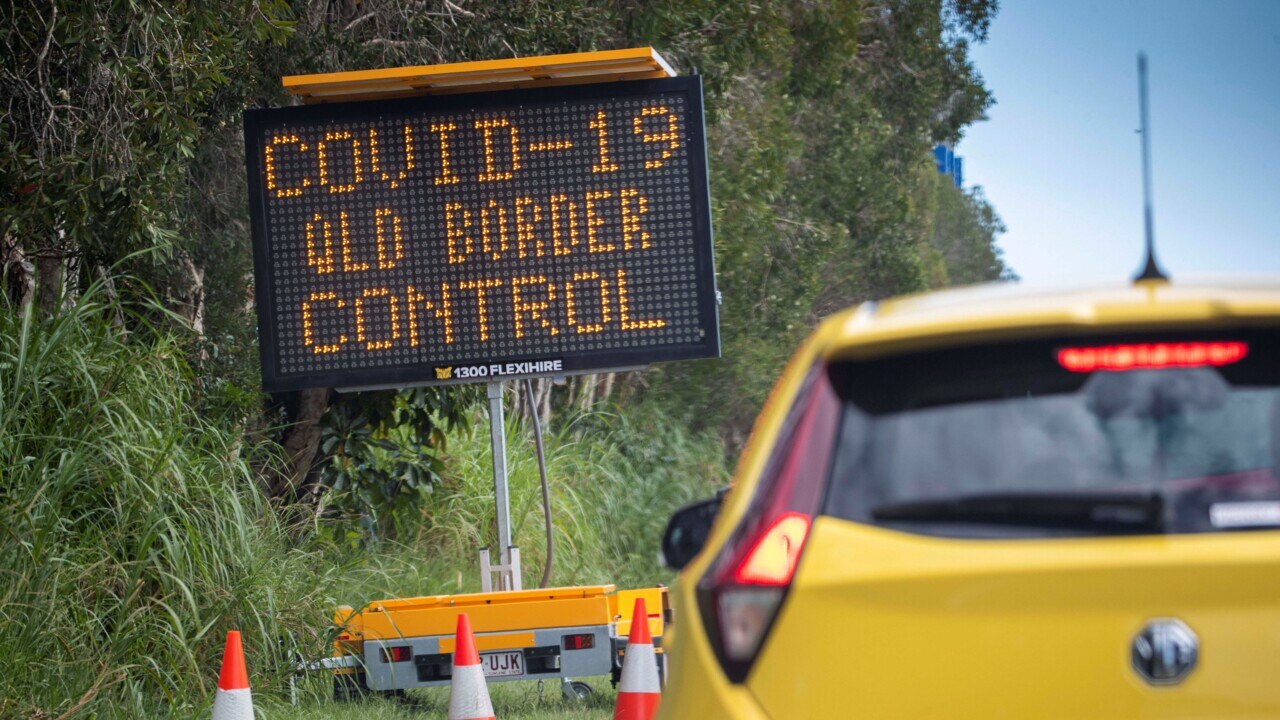
“What I’m saying is — OK, what was done in the past. Let’s give everyone a big tick for that and move forward. And the way to move forward is to open up the borders. We have to do this as a country. Not have state borders,” he told the ABC.
Mr Beattie said New South Wales’ contact tracing operation needed to be adopted on an Australia-wide basis in order to rescue the nation’s economy.
“It’s quite clear that in New South Wales where the contact tracing has identified outbreak and then got people to be tested, that method works better than anything else,” he said.
Mr Beattie said Australia’s border closures were a reasonable response to the virus at the start of the pandemic, but claims it is time to reopen given the low levels of transmission.
“Frankly, if we don’t open up, Australia is going to go broke. It’s a fact. It’s not a political comment,” he said.
“Now is the time to come together as Australians. Forget about Liberal, Labor, Greens or whatever else is out there. Think about Australia.”
READ MORE: NSW to ‘wait’ before opening Victorian border
Rachel Baxendale 8.32am: Victoria records another doughnut day
Victoria has recorded its second consecutive day of no new coronavirus cases, and eight straight days with no deaths recorded in the preceding 24 hours, as the Andrews government finally prepares to ease stay at home restrictions and reopen retail and hospitality businesses from 11.59pm on Tuesday night.
Once again, yesterday there were no new cases and no lost lives reported. In Melb, cases with unknown source are down, as is the 14 day rolling average. In regional Vic, 14 day average remains stable. https://t.co/pcll7ySEgz#COVIDVicData pic.twitter.com/dVfpCqyBiV
— VicGovDHHS (@VicGovDHHS) October 26, 2020
Melbourne’s 14-day daily average is now 2.8 cases, down from 3.6 on Monday and 6.4 last Tuesday, while regional Victoria’s is steady at 0.2, with just two active cases left in Shepparton, in the north of the state, as of Monday, both of which are linked to the Chadstone cluster in Melbourne’s southeastern suburbs.
Melbourne’s number of cases with an unknown source is down to six for the fortnight spanning October 11 to October 24, after a source was established for what was seven “mystery” cases in Monday’s figures.
There have been no recent “mystery” cases in regional Victoria.
Premier Daniel Andrews and his Chief Health Officer Brett Sutton seized on social media christening Monday “doughnut day” after Victoria recorded its first day of no new cases since June 9, posting photos of themselves eating donuts.
READ MORE: Taxpayers facing $1.3bn payout in worker entitlements
Imogen Reid 8.12am: ‘Melbourne will never lock down again’: Here’s why
Director of the Doherty Institute in Melbourne Professor Sharon Lewin says the possibility of Melbourne entering another lockdown is “out of the question”, even if another outbreak occurs.
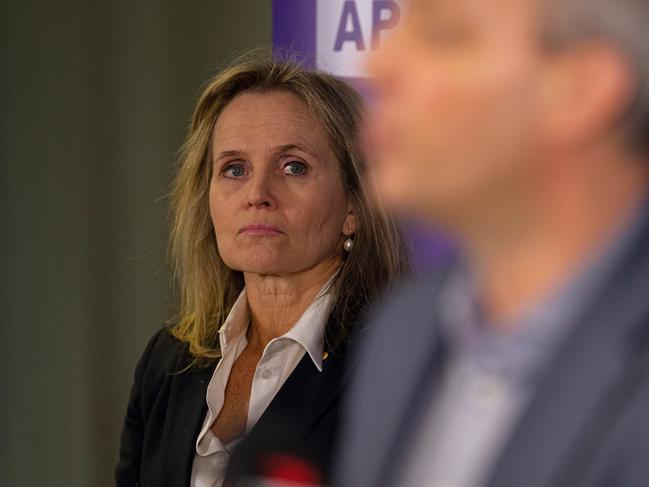
“I do think another lockdown is out of the question. No one is doing that internationally,” she told the ABC.
“We need to look at Sydney who have just done a fabulous job of putting out spot fires without closing things. It is possible and we can do exactly that here in Melbourne.”
She also backed Premier Daniel Andrews’s decision to reopen Victoria slowly, saying the move was the safest way to come out of the lockdown.
“We are going to peel off the restrictions every two weeks. A lot has been peeled off starting tonight, which is great, and he is leaving the most risky areas until the end, which is indoor gatherings, gyms and opportunities for spread, and that’s going to be lifted last, including the travel out to beyond 25 kilometres from Melbourne,” she said.
“So, I think it does make sense. We have a pretty low bar, to be honest. We have got a lot of freedom now, and I think it will also test the system over the next two weeks, and then the next set of restrictions taken off.”
READ MORE: Use our expertise, say GPs at coalface
Agencies 7.55am: Virus stalls Merkel party’s leadership vote
German Chancellor Angela Merkel’s CDU party says it will push back a congress planned for early December to elect a new leader due to a surge in coronavirus infections, AFP reports.
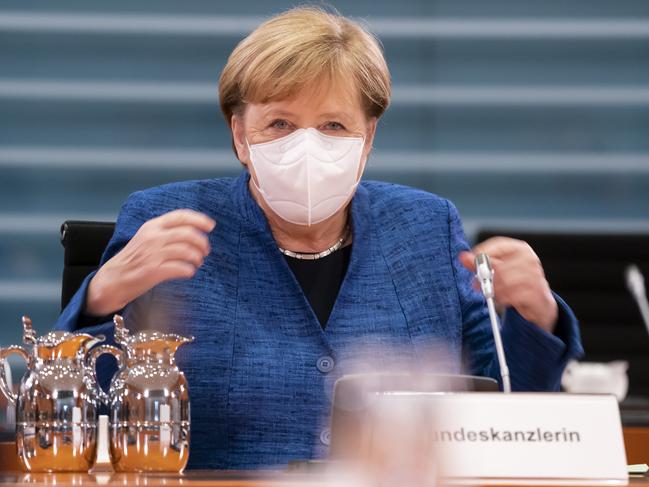
The conservative party’s top brass will re-examine the situation in mid-December to determine its next steps, general secretary Paul Ziemiak said.
“Going by the current situation, a congress with attendees on December 4 would not be allowed,” said Ziemiak.
The CDU was still hoping to hold an in-person congress at a later date rather than a video conference, but acknowledged that the online format might be the only option if the pandemic cannot be brought under control.
Merkel protege Annegret Kramp-Karrenbauer took over as the leader of the Christian Democratic Union in 2018, after the veteran chancellor said she would not seek a new mandate at general elections next year.
But the race for the party’s top job was thrown wide open when Kramp-Karrenbauer resigned just a few months into the post over her handling of a regional election scandal.
READ MORE: Pandemic fatigue is real, and spreading
Agencies 7.45am: Free meals in UK become a political football
A campaign by Manchester United striker Marcus Rashford to feed England’s poorest children during school holidays has blown up into a political brawl, AFP reports.
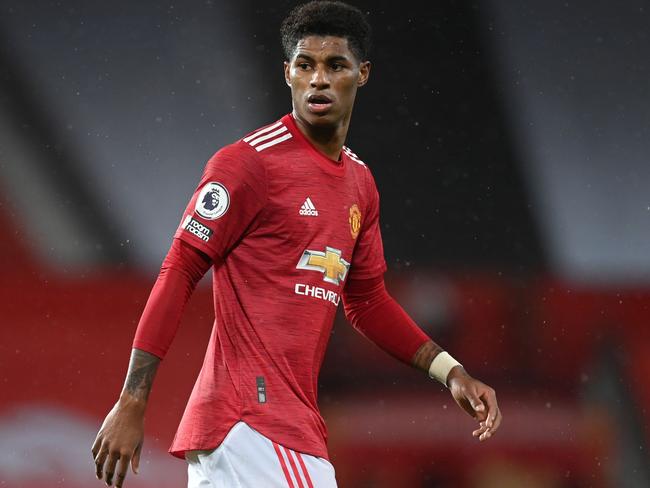
“This is not politics, this is humanity,” tweeted the 22-year-old after Prime Minister Boris Johnson’s government voted against a proposal to give free meals to vulnerable youngsters over school holidays this week.
The multi-millionaire footballer previously forced a government U-turn on providing free school meal vouchers during the summer holidays.
In recognition of his widely praised campaign, he was made a Member of the Order of the British Empire (MBE) in Queen Elizabeth II’s recent honours list.
But Johnson is not budging this time around, despite the devolved administrations in Scotland and Wales continuing meal provisions to the most needy children during holidays.
On Monday he again pointed out that increased welfare payments to families during the pandemic are helping to feed children when schools are not in session.
“I haven’t spoken to Marcus since June. I think what he is doing is terrific,” he said. “We don’t want to see children going hungry this winter, Christmas, certainly not as a result of inattention from the government.”
About 1.3 million children in England benefit from free meals at school, according to the latest official data.
READ MORE: NSW to wait on border reopening
Agencies 7.30am: Trump campaign swings through Pennsylvania
President Donald Trump has barnstormed Pennsylvania — a swing state he almost certainly has to win to get re-elected — while his Democratic opponent Joe Biden once more kept a low profile, AFP reports.
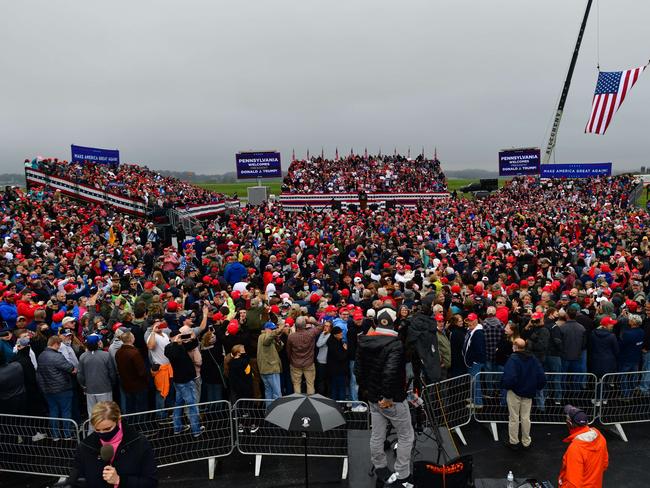
With three back-to-back rallies, Trump showed how badly he wants to win the state in eight days, telling large, enthusiastic crowds of supporters to ignore polls showing him lagging there and across other battleground states.
“We get Pennsylvania, we win the whole thing,” he said in Allentown, before flying to another rally in Lititz, with a final event set in Martinsburg in the evening.
Trump touted a poll from Rasmussen, which has long gone against the flow of more established polling companies to give him favourable numbers, and said many “hidden Trump voters” would back him in the polling booth on November 3.
The Republican cast his struggling campaign in an optimistic light, predicting that his surprise 2016 victory over apparent frontrunner Hillary Clinton would be repeated.
Biden, meanwhile, began the day in his hometown in Delaware, maintaining his record for the most lightly travelled presidential candidate in recent history.
Biden was in Pennsylvania on Saturday and is due to campaign in Florida — another hugely important swing state — on Thursday.
READ MORE: Trump on the ropes — but he’s not out
David Rogers 7.10am: Stocks slide on virus, fading stimulus hopes
The ASX is expected to open lower after Wall Street sank amid dwindling hopes for US stimulus and worries about coronavirus surges. Oil dropped 3pc. Read more here
Imogen Reid 6.45am: France has ‘lost control of the epidemic’
French health experts have said the country has “lost control of the epidemic” as case numbers surged to more than 50,000 on Monday.
President of the scientific council Dr Jean-François Delfraissy said the country was in a “very difficult, even critical situation” despite the number of new COVID-19 restrictions imposed in September aimed at easing the pressure on France’s healthcare system.
“There probably are more than 50,000 new cases every day. Our estimate at the Scientific Council is closer to 100,000 — twice as many,” Dr Delfraissy said.
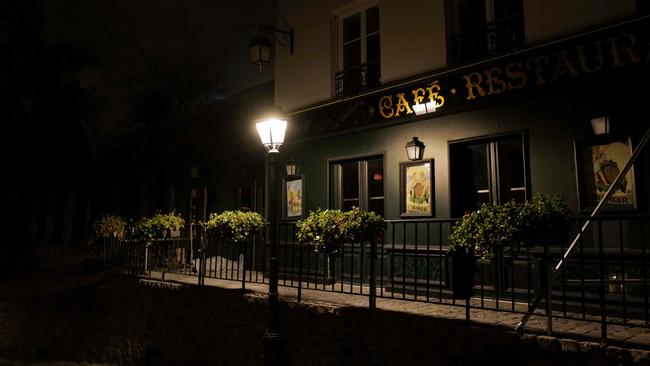
“Between those who aren’t tested and asymptomatic patients, we’re close to that number of cases. This means the virus is spreading extremely fast.”
Coronavirus related deaths in the US are on the rise again and the number of cases are increasing in almost every state, with average deaths per day up by 10 per cent across the country in the past two weeks.
The virus has claimed more than 225,000 lives in the US since the start of the pandemic, the highest death rate recorded anywhere in the world.
The surge in cases has prompted top doctors to warn of “pandemic fatigue” setting in during the winter, as complacency around mask wearing and social distancing takes effect.
"But where there has been political division at the national level; where there has been blatant disrespect for science and health professionals, confusion has spread and #COVID19 cases and deaths have mounted."-@DrTedros
— World Health Organization (WHO) (@WHO) October 26, 2020
It comes as the World Health Organisation’s Director-General Tedros Adhanom Ghebreyesus said the world cannot grow weary during its battle against the virus.
“It’s tough and the fatigue is real,” he said.
“We cannot give up … we must not give up … the fight back against this COVID-19 pandemic is everyone’s business.”
I just had a very constructive dialogue with 🇩🇪 Chancellor Merkel about the #COVID19 situation. I am impressed, as always, with her leadership and commitment. We agreed that countries must work together to suppress the virus, and that each and every one of us has a role to play. pic.twitter.com/z3n5H5mYtn
— Tedros Adhanom Ghebreyesus (@DrTedros) October 26, 2020
Globally, there have been more than 43 million people infected with the virus, while the total number of COVID-19 deaths is 1,157,051.
READ MORE: Pandemic fatigue is real — and it’s spreading
Jacquelin Magnay 5.45am: ‘I can buy alcohol, but not sanitary pads?’
To the women of Wales, words from Mark Drakeford, the Wales First Minister, were meant to be reassuring.
“There is no rule against supermarkets selling period products, or any other product which is sold in a pharmacy/chemist,” he urgently tweeted.
The problem was, women had been unable to purchase tampons and sanitary pads, at least at the Tesco supermarket in St Mellons north east of the Welsh capital Cardiff.
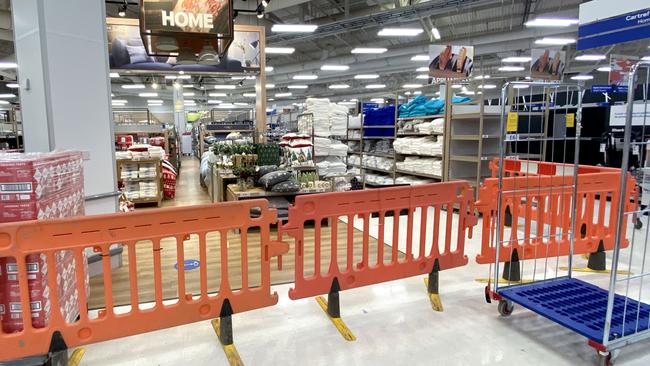
They were boarded off behind a metal barricade. Staff at the store refused women to purchase the products, telling them they were non-essential.
When one customer complained on social media that she could buy alcohol but not sanitary products, Tesco responded: “We understand how frustrating these changes are for our Welsh customers, however we have been told by the Welsh government not to sell these items during the firebreak lockdown.”
This is wrong - period products are essential.
— Welsh Government (@WelshGovernment) October 26, 2020
Supermarkets can still sell items that can be sold in pharmacies.
Only selling essential items during firebreak is to discourage spending more time than necessary in shops. It should not stop you accessing items that you need.
Wales last Friday began a highly controversial 17-day full lockdown, quaintly termed a “firebreak”, because officials there believed denying people the chance to shop for non-essential items, closing schools and banning social meetings between households would control the virus.
Wales has had a spike of cases: on Monday the death toll rose by six and the number of cases rose by 1,150.
But in messages reminiscent of communist Soviet Union and East Germany, and totalitarian regimes like North Korea, Welsh shops now can only sell food and other items that are deemed “essential”.
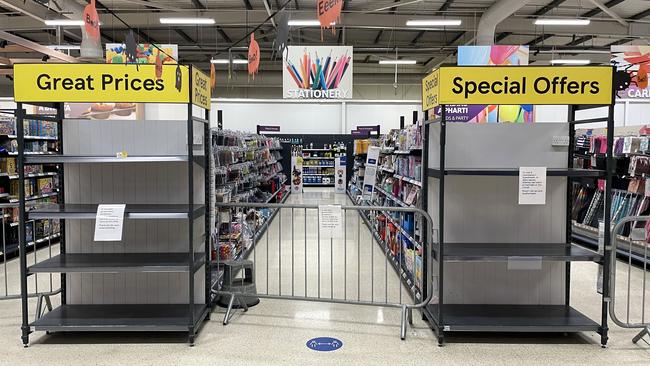
Read the full story here.
Jacquelin Magnay 4.50am: Oxford AstraZeneca vaccine out by Christmas
British doctors, frontline medical staff and high-risk patients may get the first emergency shots of the Oxford AstraZeneca COVID-19 vaccine before Christmas.
But Australia’s supply of the vaccine, which is undergoing stage three trials, is likely to be available only once it has received full regulatory approval.
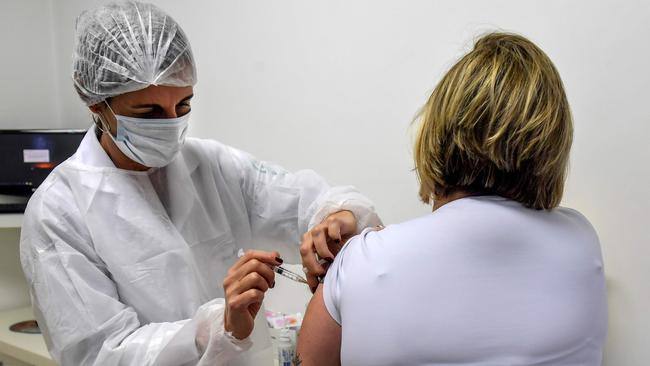
Australia has contracted for supplies of the Oxford vaccine. Europe has committed to 400 million doses, while the US will receive 300 million.
Scott Morrison said this month Australia would receive the first 3.8 million doses of the vaccine in January and February and a further 30 million doses down the track. The government has also contracted to buy 51 million doses of the University of Queensland vaccine, still in development. Both vaccines will be manufactured under contract by CSL in Australia.
The professor leading the Oxford trial, Adrian Hill, said emergency approval in the UK would clear the two-jab vaccination to be given to medics and those at high risk, while stage-three trials are nearing completion. He said this could happen by Christmas.
He believes the official sign off for distribution to the wider community would start at the beginning of next year. “The initial licence would be for emergency use, not full approval,” Professor Hill said on Monday.
Read more: UK vaccine set for end of year roll out
Rachel Baxendale 4.45am: End of lockdown comes too late, business says
Five million Melburnians will finally be released from coronavirus lockdowns that have confined them to their homes for 111 days, after Daniel Andrews accelerated his cautious easing of restrictions, allowing shops, pubs and restaurants to reopen on Wednesday.
The decision came little more than 24 hours after the Victorian Premier controversially announced a “cautious pause” on long-promised reopening plans, as health authorities scrambled to reassure themselves and the government that a coronavirus cluster of 39 cases — 22 of which remain active — in Melbourne’s north was under control.
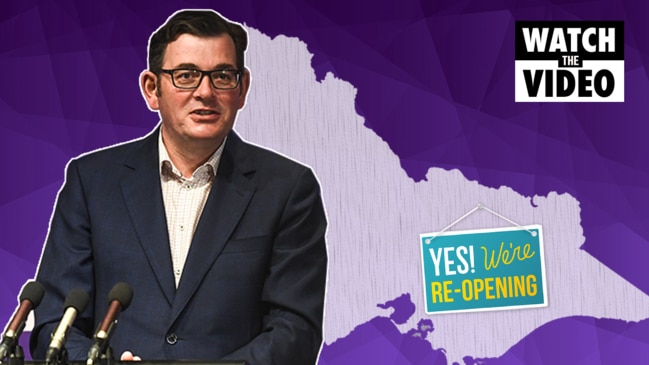
Victoria recorded no new cases in the 24 hours to Monday — the first “zero” day since June 9, less than a fortnight after the virus began to leak out of the Andrews government’s hotel quarantine program, causing a second wave that peaked with 7880 active cases on August 11.
Read the full story here.
Ewin Hannan 4.30am: Taxpayers facing $1.3bn payout on entitlements
Taxpayers will pay $1.3bn in wages and entitlements for almost 120,000 workers by 2023 if federal government forecasts about the increase in the number of collapsed employers because of the COVID-19 recession are realised.
Officials from the Attorney-General’s Department detailed a big rise in the amount of money expected to be paid out under the government’s Fair Entitlements Guarantee Scheme, with the amount jumping from $162.3m in 2019-20 to a forecast $468m this financial year.
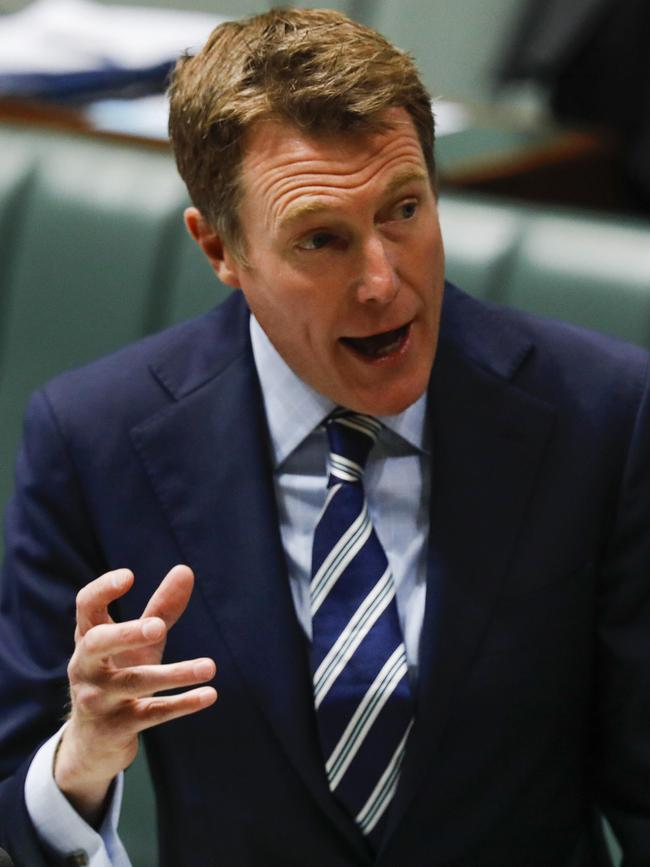
According to projections provided to a Senate estimates hearing on Monday, the amount to be paid out will rise to $500m next financial year, while the amount budgeted for 2022-23 is $374m.
Under the scheme, the government covers certain unpaid employment entitlements to eligible employees who lose their job because of the liquidation or bankruptcy of their employer.
Officials told the hearing that the number of workers expected to be paid out this financial year would be 34,268, while 33,444 were forecast to be paid out in 2021-22, 24,357 in 2022-23 and 27,248 in 2023-24.
Labor senator Murray Watt said the figures showed there was a “tidal wave coming”.
Attorney-General Christian Porter said the stimulus spending in the federal budget would significantly cushion the impact of the pandemic on the economy and assist businesses.
The government announced an extra $35.3m would be spent to provide up to 150 staff within the Attorney-General’s Department to process FEG claims.
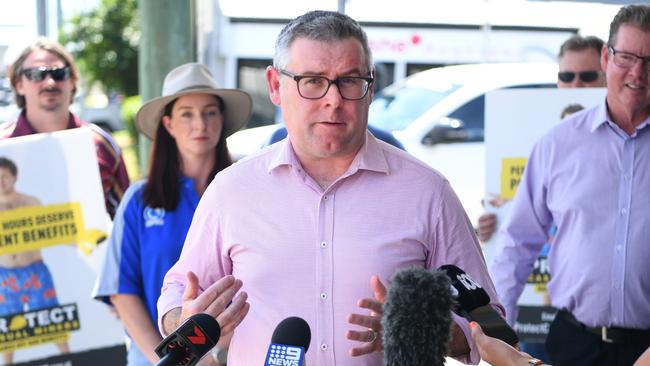
Continue reading here.
The Australian 4.15am: If we’re all in it together, let us travel interstate
EDITORIAL: Henry Parkes, veteran premier of the colony of NSW and champion of Federation, declared in 1890: “The time has now arrived when we are no longer separated. The crimson thread of kinship runs through us all.”
He was harking back to the distinct origins and colonial rivalries of NSW, Victoria and Queensland, but more than a century later we are discovering — amid pandemic crisis and dislocation — a strange and unsettling sense of separation forced upon us as Australians. Of course, we remain a political union — one in theory brought closer by a national cabinet — but our economy and society are fragmented by erratic state border closures.
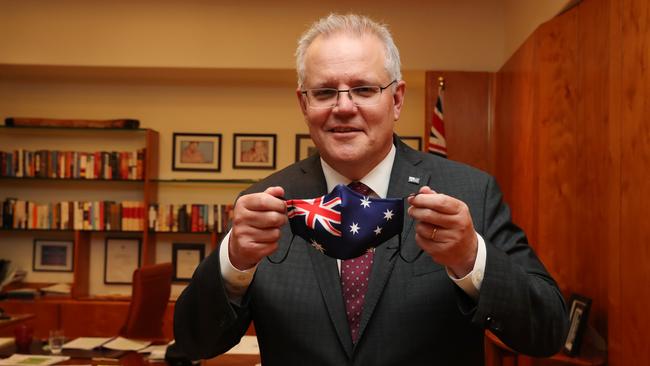
Scott Morrison was right to focus minds on unity by year’s end, when he said in September: “What we have to work to do is to let Australians know that, by Christmas, they will be able to come together. By Christmas, they will be able to come together as families and look to a 2021 that doesn’t look like the difficulties that they’ve gone through in 2020.”
That festival is symbolic of scattered family and friends making the effort to come together. For morale, hope and effective public policy, it’s vital to have a goal and a set date. But the disproportionate financial and human costs of lockdown and poorly thought-through border closures are becoming more obvious by the day.
Read the full editorial here.

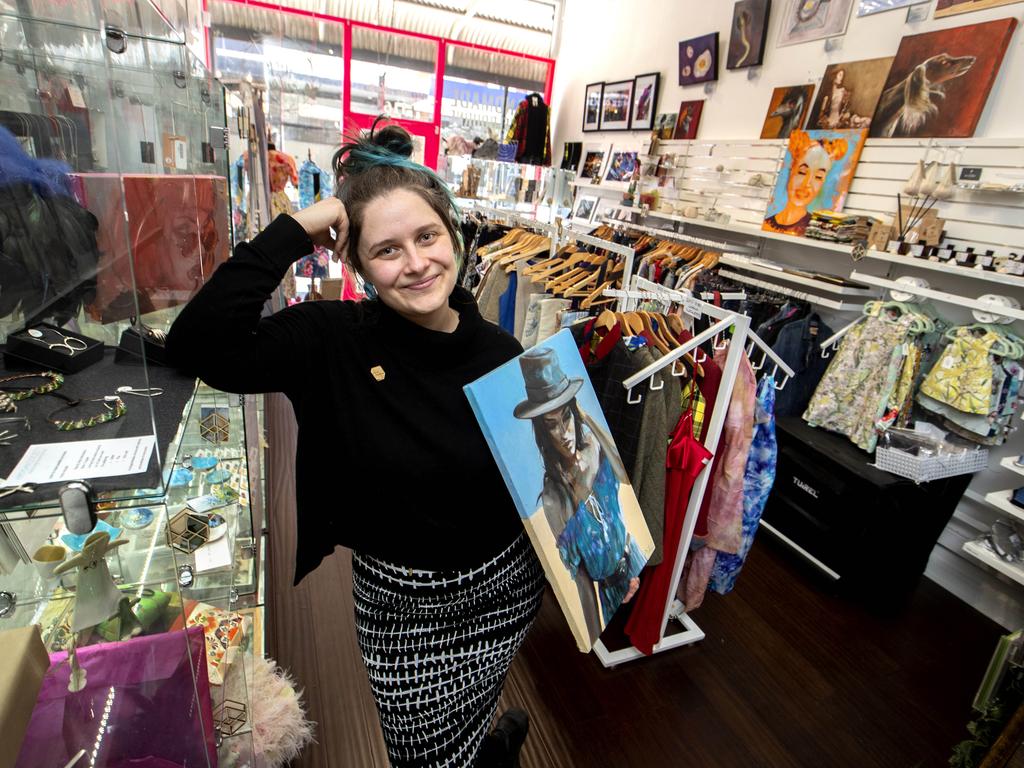


To join the conversation, please log in. Don't have an account? Register
Join the conversation, you are commenting as Logout